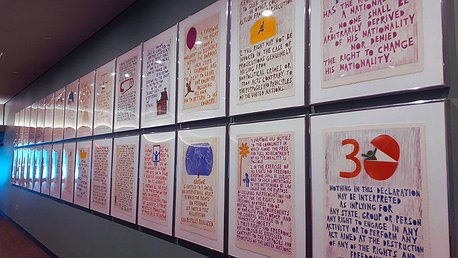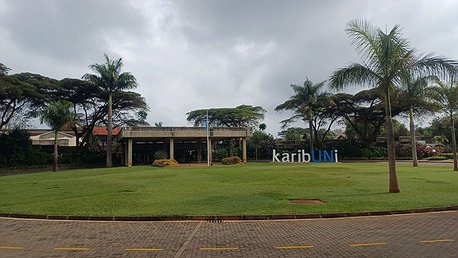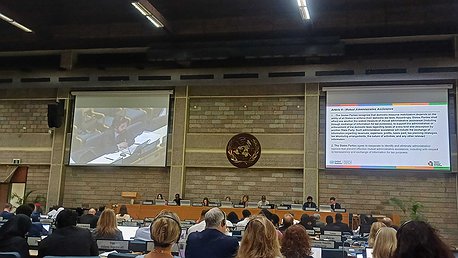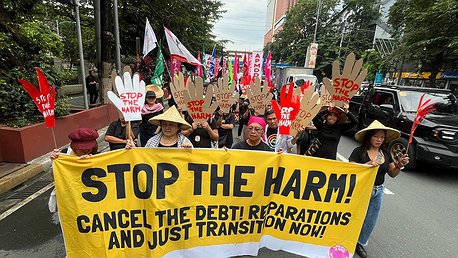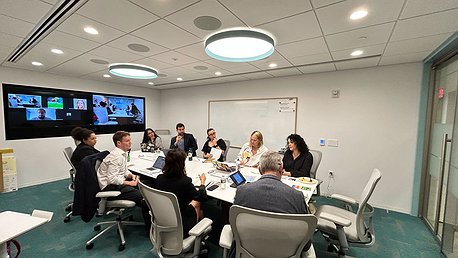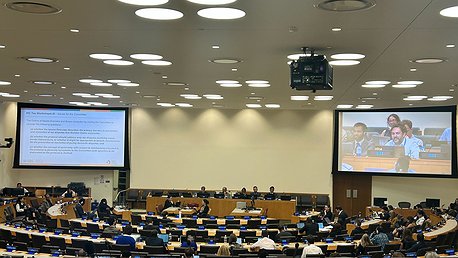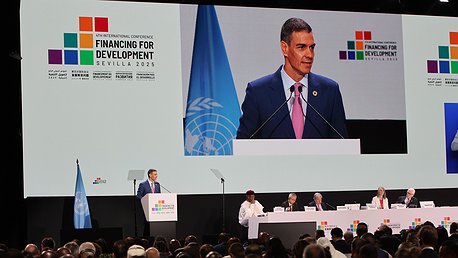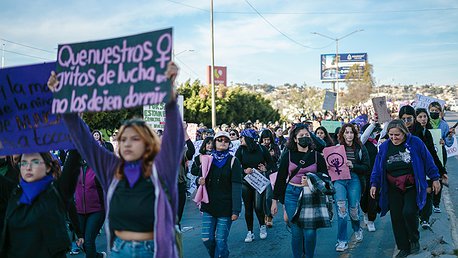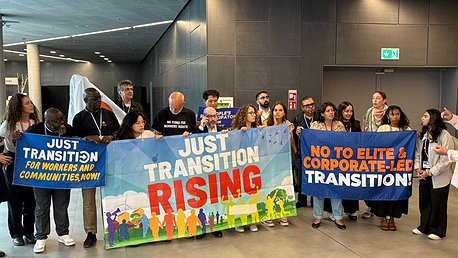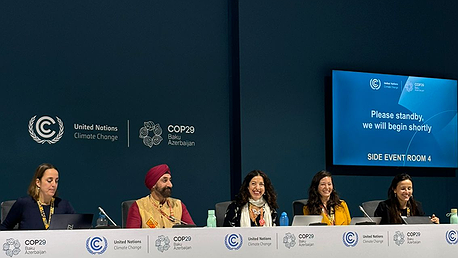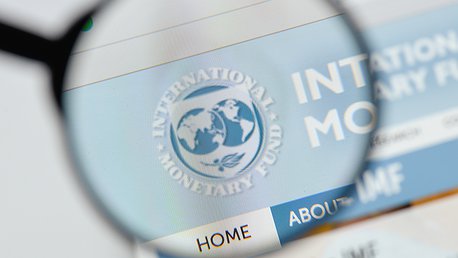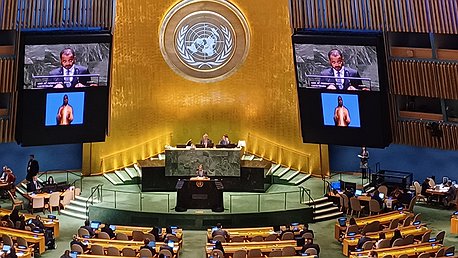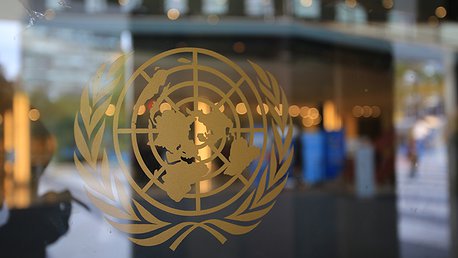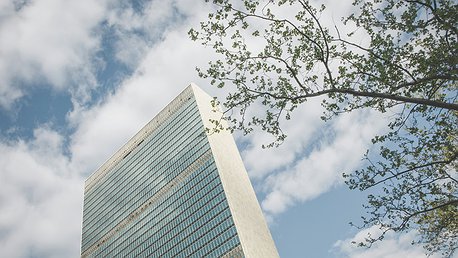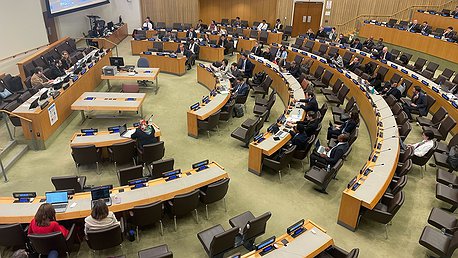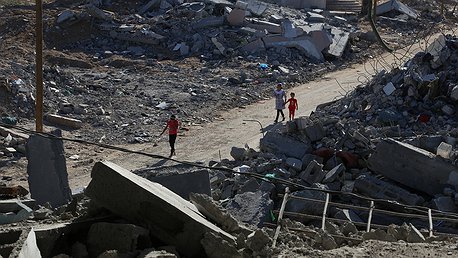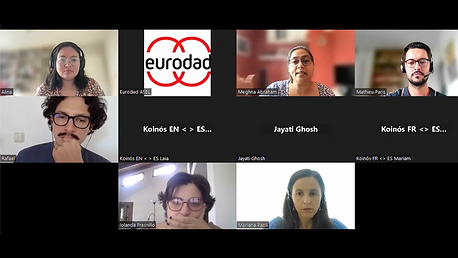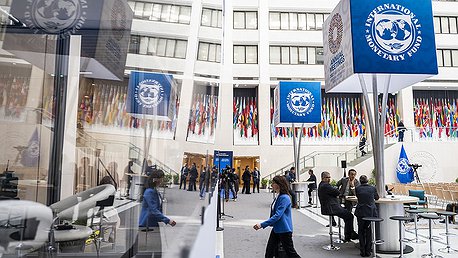Global
Showing 438 results

Financing the right to education for peace, equality and a Rights‑Based Economy
As governments prepare to mark the International Day of Education on January 24, too many are left behind because of chronic underinvestment. This moment demands a clear shift toward public financing that is grounded in rights and accountable to people.
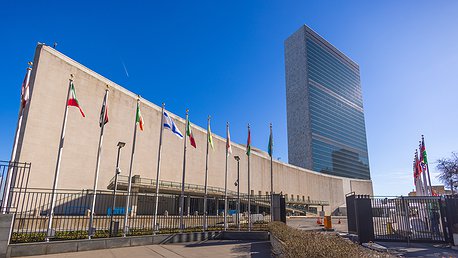
States’ submissions to the UN Tax Convention reveal uneven ambition
Latest States’ submissions to the UN Tax Convention discussions highlight contrasting approaches to global tax cooperation, with repeated resistance from Global North countries and uneven engagement across much of the Global South.

COP30 delivered a landmark Just Transition Mechanism, but no commitment on climate finance
COP30 delivered a breakthrough with the creation of a rights-based Just Transition Mechanism, yet governments once again left the core question unanswered: who will pay for the transition.

A new mandate for equality: G20’s landmark report opens space for rights-based global cooperation
The first G20 report on global inequality warns of an “inequality emergency” and calls for a new international panel to coordinate action. For CESR, it offers a chance to turn recognition into lasting reform rooted in human rights.
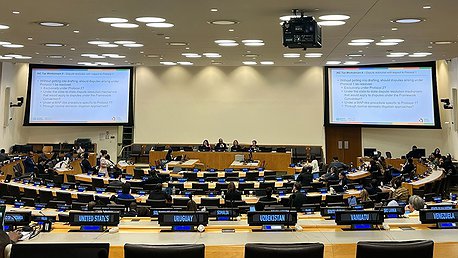
The UN tax talks are exposing who benefits and who loses under today’s rules
The first two UN Tax Convention sessions exposed a global power struggle over who gets to tax multinational profits and whether States can secure the resources needed for people’s rights and wellbeing.

Early signals: mapping State and stakeholder inputs on the UN Tax Convention
As the UN Tax Convention talks begin, submissions reveal sharp divides while civil society pushes to put rights and justice at the core.

New guide: Decoding Gender Injustice
This guide unpacks how global economic policies entrench inequality and provides tools to challenge them. It equips movements to expose systemic harms and push for economic rules that center care, equity, and dignity.

Cautious consensus: Where we stand on the Compromiso de Sevilla
Despite deep divisions, the Compromiso de Sevilla opens space for long-overdue reforms in global economic governance. This blog unpacks what was gained, what was lost, and how civil society and Global South coalitions are pushing beyond compromise toward rights-based transformation.

Joint briefing: Making financial flows consistent with climate-resilient development
Led by Recourse with contributions by CESR and partners, this joint briefing examines how international financial institutions and standard setters are shaping — and obstructing — efforts to align global finance with climate-resilient development. It outlines the actions high-income countries must take to meet their obligations under the Paris Agreement and support a just transition.

Regional experts call for rights-centered international fiscal reform
As UN tax negotiations are set resume in a few months, a high-level dialogue in Santiago called for embedding human rights at the core of global and regional fiscal reform.
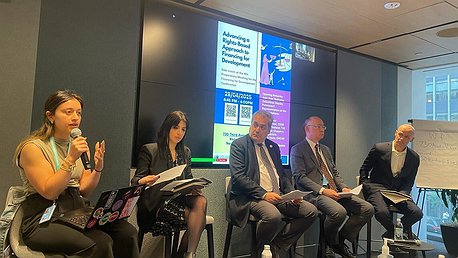
CESR at FfD4 Prep Com 4: Driving rights-based finance and gender justice
Amidst escalating crises, our interventions highlighted the urgent need to reclaim public finance for people and planet, ensuring no one is left behind.
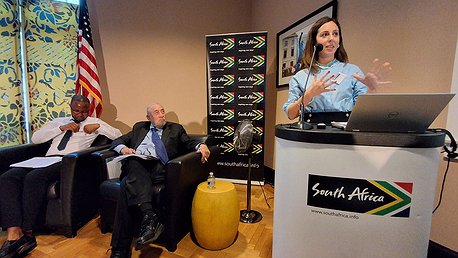
Leading voices call for a new development, rights-centered approach to sovereign debt at paper series launch
Leading experts, including Nobel laureate Joseph Stiglitz, called for urgent sovereign debt reform at the launch of the Sovereign Debt Working Paper Series, led by IEJ with contributions from CESR and Boston University’s Global Development Policy Center.

Protecting our common home and our shared humanity: Pope Francis’ legacy, the Jubilee and the way forward
As we enter the Jubilee year, we reflect on Pope Francis' unwavering advocacy for debt relief, tax justice, and a Rights-Based Economy.

States adopt UN resolution to further rights-enabling economic policies
The Human Rights Council’s new resolution on economic, social and cultural rights strengthens the link between human rights and fiscal policy

All roads lead to Seville: why FfD4 matters for civil society and economic justice
We have reviewed FfD4’s First Draft—the preliminary version of the Conference’s outcome document now under negotiation. Like many of our allies, we see some welcome progress, but remain concerned that it falls short of what’s needed to confront the deep structural inequalities shaping the global economy.

UN CESCR issues historic statement on tax and human rights
After CESR and allies urged the Committee to champion tax justice as a human rights imperative, the UN entity explained in detail the importance of fair and inclusive taxation for the realization of social rights.
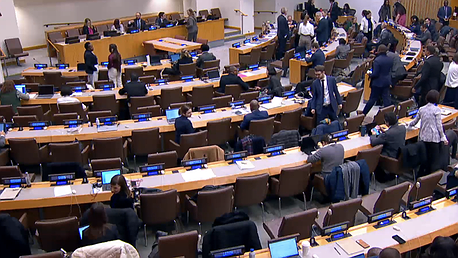
Unpacking the first organizational session of the UNTC: progress towards a just global tax system
The first organizational session of the Intergovernmental Negotiating Committee for the UN Tax Convention has concluded with significant progress toward just and inclusive global tax governance.

The UN Tax Convention Terms of Reference have been approved. What’s next?
In a historic moment for global fiscal justice, the United Nations General Assembly approved the Terms of Reference (ToR) for the UN Tax Convention on November 27. This decisive outcome signals a global commitment to addressing inequalities, curbing tax abuses, and ensuring a fairer distribution of resources, and promoting inclusivity worldwide.

Will the “Finance COP” live up to the expectations? A critical analysis of the stakes at COP29
As COP29 approaches in Baku, the summit billed as the “Finance COP” raises critical questions about the global commitment to climate finance. ESR examines the stakes, from financing adaptation and loss to reforming global debt structures and taxing climate damage.

CESR and allies put forward key proposals for FfD4 to build a rights-based financial future
As the countdown to the Fourth Conference on Financing for Development (FfD4) in Seville 2025 begins, CESR joins forces with civil society to put forward a powerful agenda for financial transformation.

Rethinking global debt restructuring: CESR’s rights-based approach for a just financial architecture
Our chapter in "Building New Foundations: Reimagining the International Financial Architecture" offers a bold, rights-based vision for debt restructuring as a pathway toward fairer, more effective global financial institutions.

Relive “Privacy vs. transparency: Human rights and the UN Tax Convention”
On October 22, CESR hosted a webinar addressing the complexities of privacy, transparency, and human rights in the context of global tax reform.

Unmasking debt injustice: how sovereign debt violates human rights
Our new video, an introduction to the Decoding Debt Injustice guide, authored by CESR and Debt Justice, sheds light on the often hidden forces that perpetuate the global sovereign debt crisis.
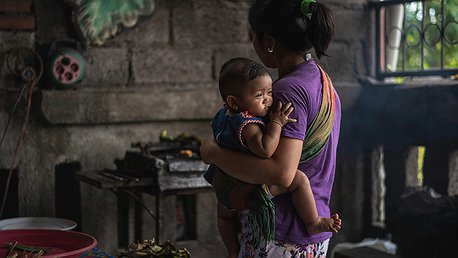
Recognizing care as a human right and a public good: a call to action from global civil society
As the UN prepares to shape the Pact for the Future, feminist, labor, and human rights organizations are pushing for care to be recognized as a fundamental human right.

CESR and allies urge CERD to address how UK's colonial legacy fuels racial inequality through modern tax havens
CESR, along with Tax Justice Network, ESCR-Net, Movement Law Lab, and other allies, recently made a submission to the Committee on the Elimination of Racial Discrimination (CERD) for its review of the UK.
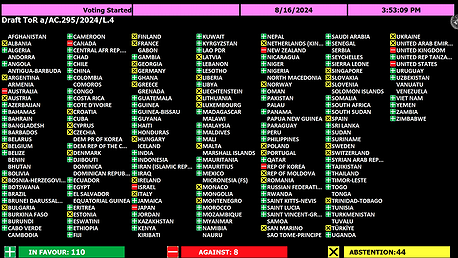
The adoption of the UN Tax Convention Terms of Reference paves the way for Fiscal Justice
Adopted by 110 votes to 8, the Terms of Reference include human rights as a core principle.

G20 issues unprecedented declaration on tax cooperation ahead of final UNTC Terms of Reference negotiations
The G20 committed to cooperate to “ensure that ultra-high-net-worth individuals are effectively taxed”, and further discuss the issues in the G20 and other relevant forums.

Actualizing a Rights-Based Economy through synergies from alternative economic models
Students at the University of Essex’s Human Rights Centre Clinic dove deep this year into the Rights-Based Economy and its connection to other economic models.
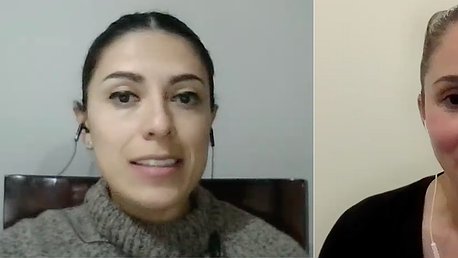
Breaking Barriers, Building Bridges: Pioneering Gender Equality in a Rights-Based Economy
On 19 June 2024, CESR hosted a fascinating roundtable discussion, examining how our vision for a Rights-Based Economy (RBE) can incorporate ideas from indigenous and feminist movements to fully realize economic and social rights. Relive it here.

Publications, Reports & Briefings
2022-23 Annual Report
Read our 2022–2023 annual report to see how we worked alongside movements and partners to advance a Rights-Based Economy amid deepening inequality, mounting debt pressures, and renewed efforts to return to business as usual.
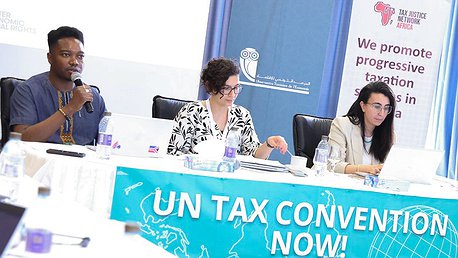
CESR joins African CSOs in rallying support for rights-based reforms to international taxation
CESR participated in a two-day workshop in Tunis on the role of African countries in defining global tax rules, hosted by the Tunisian Observatory of the Economy (OTE) and Tax Justice Network Africa (TJNA).

Strengthening the human rights dimension of the UNTC: CESR and allies weigh in on Terms of Reference Zero Draft
Our second submission to the UNTC’s Terms of Reference Committee, with a diverse group of allies, emphasizes the need for human rights to be explicitly integrated into the UNTC framework

Breaking barriers, building bridges: pioneering gender equality in a Rights-Based Economy
Explore how a Rights-Based Economy can strengthen gender equality on June 19. Register now!
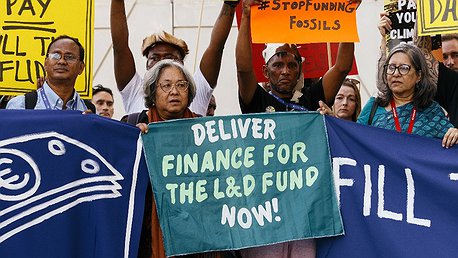
SB 60 Event: Loss and Damage in the Face of False Solutions
Join us at SB60 to explore how to hold wealthy countries and corporations accountable for the climate crisis and pave the way for climate reparations.
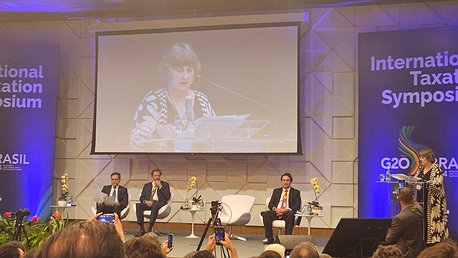
CESR and civil society allies present historic taxation recommendations to Brazil’s Finance Minister and G20 authorities
For the first time, the G20 Finance Track has directly received recommendations from civil society organizations, marking a historic moment in international tax policy discussions.

Join the 2024 cohort of the Decoding Injustice Learning Lab!
Explore tools to engage in economic policy debates and build evidence to change the system with allies from all over the world. Applications for the Decoding Injustice Learning Lab are now open.

CESR's intervention at the United Nations Tax Convention Ad-Hoc Committee
CESR delivered a statement at the meeting of the Ad Hoc Committee drafting the terms of reference for a United Nations Framework Convention for International Tax Cooperation. Read our intervention here.
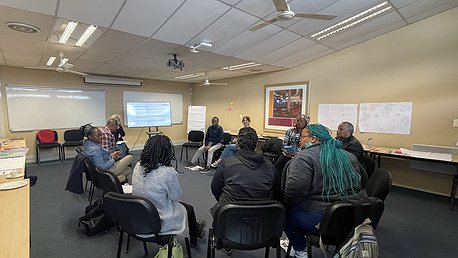
Publications, Reports & Briefings
Co-creating change: Shifting the Narrative on rights and the economy in South Africa
Collaborative insights and materials to redefine how we talk about human rights and the economy
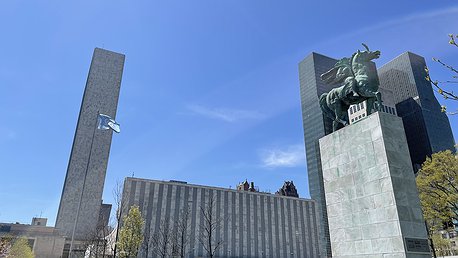
Setting the stage: an in-depth analysis of the 103 submissions to the UNTC
Here, we analyze the key demands and issues that member states and other relevant stakeholders are putting on the table.
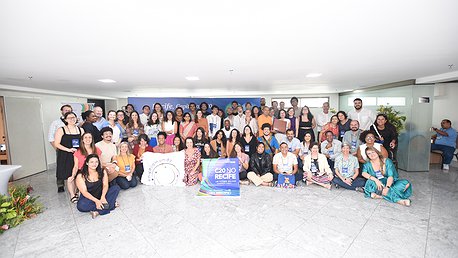
Unity in diversity: the G20 under the Brazilian presidency and the opportunity to join forces to reshape the global economy
At the heart of the recent Civil 20 (C20) inception meeting in Recife, Brazil, lies an unprecedented opportunity to champion a rights-based approach to economic policy.

Funding the fight against the climate crisis: An update on key trends in the world of climate finance
This short recap on the state of play in climate finance summarizes a few of the latest developments in the field through a reparations-based framework

What we learned from the first cohort of the Decoding Injustice Learning Lab
In 2023, CESR's Decoding Injustice Learning Lab welcomed its inaugural cohort. Here's a glimpse into what we've learned and our aspirations for future editions.
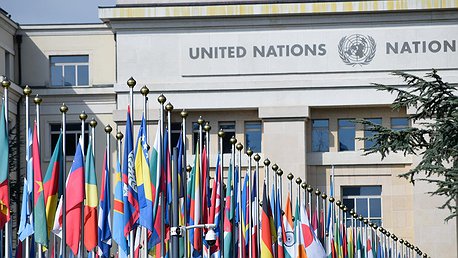
The UN framework convention on international tax cooperation is now a certainty: What can and must it address?
This month, a coalition of 30 civil society organizations led by CESR, including Oxfam and Amnesty International, submitted a proposal to the UN, advocating for a global tax treaty that prioritizes human rights. This marks a significant step in the process of establishing a unified approach to international tax cooperation through the United Nations.
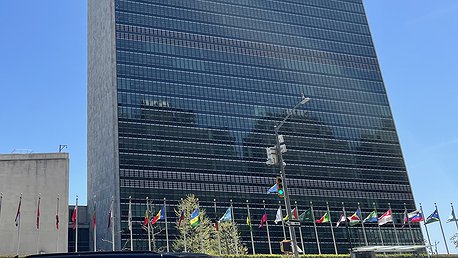
CESR and allies send submission urging human rights inclusion in UNTC terms of reference
CESR, in collaboration with a worldwide network of civil society organizations, has presented a collective submission to the Ad Hoc Committee tasked with drafting the Terms of Reference for the United Nations Framework Convention on International Tax Cooperation (UNTC).
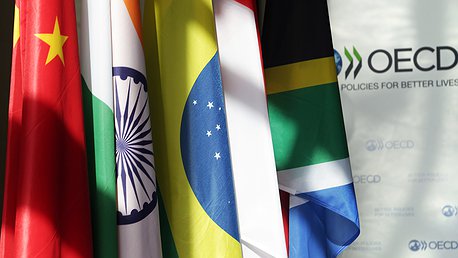
OECD’s tax deal may discriminate on the basis of gender and race - UN experts warn
Following a joint submission by CESR and allies, UN Experts have warned of the potentially discriminatory impact of the OECD’s “Two Pillar Solution”.
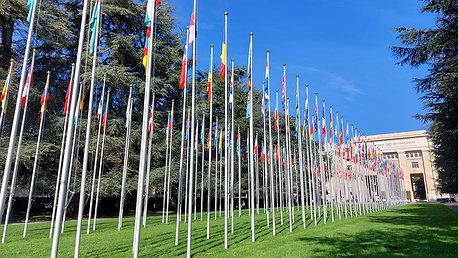
Statement: the African Group’s push to develop a UN Tax Convention requires global and cross-movement support
Nigeria tabled a draft resolution that could result in a comprehensive new treaty on international tax cooperation by 2025. Here’s why it requires support from all countries and movements.

Decoding Debt Injustice: shed new light on how the global debt crisis impacts people’s rights
This guide, co-published with Debt Justice, sets out how to collect, analyze, and present data, to shed new light on how the global debt crisis impacts people’s rights.
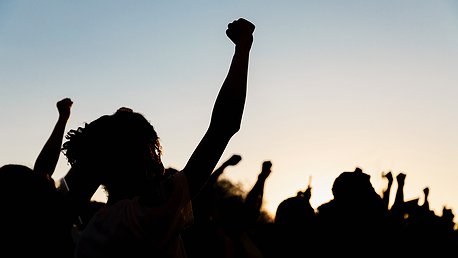
Transforming the Global Economic System: our 2023–2027 Strategy
What will it take to achieve real, rather than superficial, change? This question is at the heart of our new strategy.
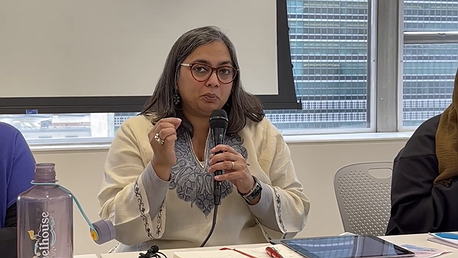
Watch: For a Gender Transformative Digital New Deal
CESR and allies discuss a common agenda for a gender-transformative digital new deal at CSW 67.
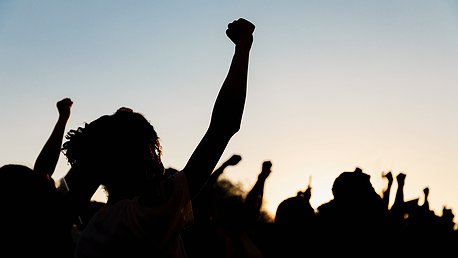
Amidst multiple crises, we’re bigger than the sum of our parts
An end-of-year message from our Executive Director.

Using indicators to measure what we treasure
New initiatives are developing indicators to capture shifts in the policy landscape. Here, our team reflects on the efforts we and our allies are making to measure what matters.

Help us draw the blueprint for a Rights-Based Economy
We're starting a collaboration and learning process, with the aim to gather ideas, critiques, stories and proposals to bring to life the bold and ambitious vision of the Rights-Based Economy.

CESR calls for intersectional climate justice which is rights-aligned and anti-racist
In the submission, we focused on reforms to global economic governance and the link between resource generation and the capacity to respond to climate change and its racially disparate impacts.

United Nations addresses the WTO on vaccines & racism after request from CESR and partners
The UN’s Special Rapporteur on Contemporary Forms of Racism called upon States to use all tools at their disposal to bring an end to vaccine inequity and its racially disparate impacts.

Our commitment to Equity and Justice: Reflecting on CESR’s journey to embody these values
We’ve embarked on a process of analyzing our work and workplace to fully embody the values we want for the world.

Embodying equity & justice in our work and workplace
CESR's strategy to embed anti-oppression and social justice practices in all aspects of our work.
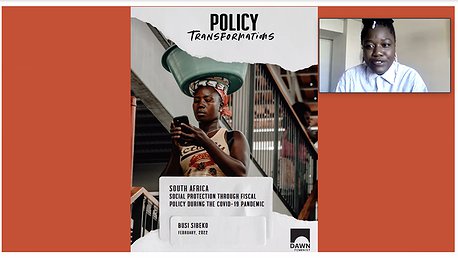
Fighting back against pandemic austerity
Our team joined a research-based conversation, organized by DAWN, and explored the links between the Rights-Based Economy and a feminist recovery from COVID.

Why tax justice is critical to the rights of persons with disabilities
As the 2022 Financing for Development Forum gets underway, guest bloggers Polly Meeks and Mirjam Gasser use examples from Switzerland, the UK, and India to illustrate why the rights of persons with disabilities cannot be fully realized without reform of the international tax system.
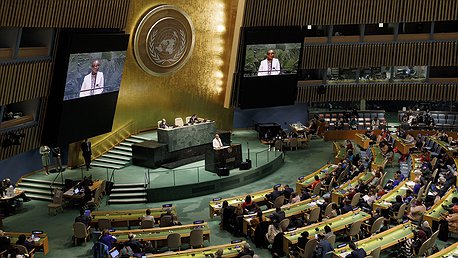
CSW in a time of climate and COVID crisis
Our Climate Justice Program Officer, Alina Saba, offers here a recount of the progress and challenges seen at CSW 66, the world’s largest gathering on women’s rights.
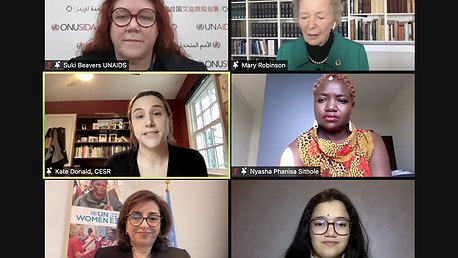
CESR calls for a Rights-Based Economy at CSW66
CESR’s team advocated for systemic economic transformations at the world’s largest gathering on women's rights.

A refreshed look, more force to transform the economy
If this website seems different to you, it’s because we have a new look! Updating our visual identity is not just a cosmetic change: Here, we explain how it boosts our efforts to transform the economy through the power of human rights.

Are We Advancing Towards a Rights-Based Economy?: Outcomes of CESR’s mid-strategy review process
More activists and organizations are increasingly incorporating a human rights lens into their work, boosting efforts to transform the dominant economic system.

Half Measures: Global Digital Tax Proposals Fall Short of Realizing Human Rights
In this working paper, we analyze the human rights impacts of proposals to tax digital multinationals.

Learning From Our Community
What have we learned from our organizations mobilizing for economic transformation in the wake of COVID-19.

Time for a Rights-Based Economy (the inequality-based one isn’t working)
Human Rights Day message from our Executive Director, Ignacio Saiz

CESR's Submission to UN’s Independent Expert on Foreign Debt
We urge Prof. Attiya Waris to investigate the linkages between rising debt, tax systems, governance, and climate action.

CESR Highlights the Importance of Human Rights to Combat Illicit Financial Flows
The Principles for Human Rights in Fiscal Policy were presented at the 4th Conference on the Right to Development & Illicit Financial Flows from Africa.

Platforming Workers’ Rights in Global Tax Deals
Will the new “global solutions'' being proposed for taxing multinationals align with workers’ rights? In this new post, we analyze the links between global tax deal proposals and the lives of platform workers.

Principles for Human Rights in Fiscal Policy: a necessary input to discuss the Business and Human Rights agenda
The Principles were highlighted at two important events on the links between businesses and human rights.
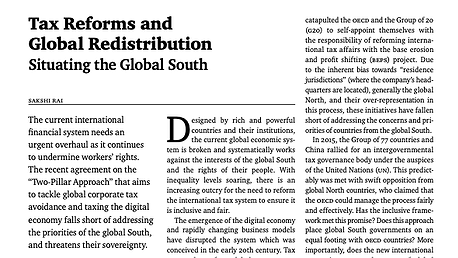
Tax Reforms and Global Redistribution: Situating the Global South
In this commentary piece for Economic & Political Weekly, our Program Officer, Sakshi Rai, argues for an urgent overhaul of the international financial system, as it continues to undermine workers' rights.

Publications, Reports & Briefings
Aligning Demands for a Just Recovery
We organized two community calls with partners and allies from across the social, economic, and environmental justice movements. In this brief publication, you can find out more about what we learned about working together for a rights-based economic transformation in the wake of COVID-19.
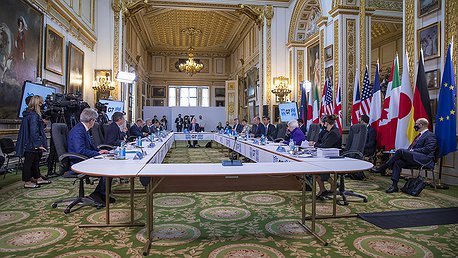
Global Minimum Tax: G7 Agreement Lacks in Legitimacy, Fails to Tackle the Root of the Problem
A truly progressive global tax reform must aim for the fair allocation of taxing rights for Global South countries, challenging the colonial foundations of the international financial system and giving all countries an equal seat at the table.

Reclaiming the Narrative: Using Data to Shift Power for Economic and Social Rights
Human rights can help us examine how power is reproduced in the production, collection, and use of data. They also suggest how we can correct these imbalances and distortions. We are engaging in collective efforts to develop data principles for economic, social, and cultural rights.

Zooming Out: Strategizing for a Just Recovery in Virtual Spaces
We recently experimented with a new format for sparking conversations online, gathering more than 50 partners and allies. The result? Valuable insights on the shared challenges of building a just recovery from COVID-19.

Freeing Fiscal Space: A Human Rights Imperative in Response to COVID-19
Our Executive Director, Ignacio Saiz, contributed to a new issue of GLOBAL TRENDS. ANALYSIS, published by the Development and Peace Foundation (SEF).
%2014.32.27.png.458x258_q85_box-0%2C64%2C2142%2C1271_crop_detail.png)
Rights Not Debts
CESR contributed to Progressive International's Debt Justice Blueprint, a series of essays that tackle the different dimensions of debt.

Time for a Human Rights Injection Against Vaccine Nationalism
Wealthy countries and their pharmaceutical companies have shown themselves too selfish to be politely persuaded to show solidarity with those on the other side of the vaccine divide. It’s time to deploy a fuller arsenal of tools to compel them to cooperate as a matter of justice and human rights.

When Will the G20 Honor Its Debt to Human Rights?
Last week, we saw a flood of civil society actions and demands that all amount to a similar urgent task: to dismantle and rebuild our current global economic system.
_2_0.jpg.458x258_q85_box-0%2C328%2C969%2C873_crop_detail.jpg)
Embedding Human Rights in Economic Responses: Learnings From Recovering Rights
At the end of last year, we asked readers and co-authors of our Recovering Rights series for their feedback. Here we share some of the insights we heard and lessons we’ve learned from this exercise.
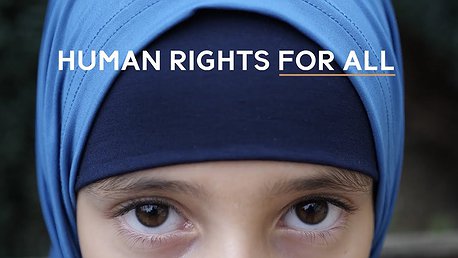
A Rights-Based Economy: In Critical Times, a Roadmap for Action
We will not recover from this crisis by reviving "economic growth", but by transforming our broken system for good. A Rights-Based Economy offers a blueprint for change.
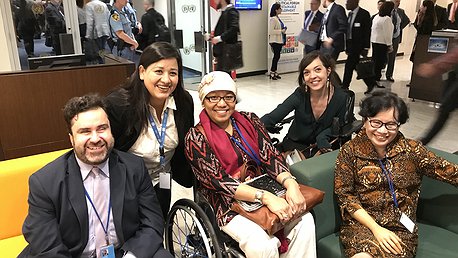
Confronting COVID: How Civil Society is Responding Across Countries | The Rights of Persons With Disabilities
Polly Meeks, Elizabeth Lockwood, and Mohammed Ali Loutfy discuss the dire impact of the pandemic on persons with disabilities and how to effectively uphold their rights.
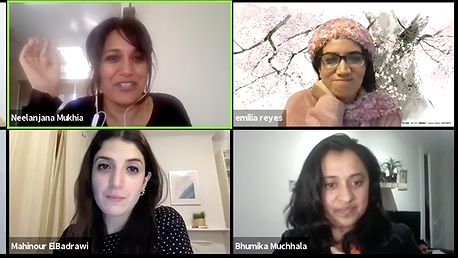
CESR participates in the Global South Women's Forum on Disrupting Macroeconomics
From 14-18 December 2020, CESR participated in the Global South Women's Forum on Disrupting Macroeconomics, organized by International Women's Rights Action Watch Asia Pacific (IWRAW-AP).
COVID-19: Resourcing Rights | December Round-Up
As this tumultuous and difficult year comes to a close, there is positive news on the horizon. Just last week, the first country launched its national COVID-19 vaccination campaign, with other countries set to follow suit within weeks. There is an end to the pandemic in sight - for some.

Envisioning a rights-based economy: new report from CESR and Christian Aid
Center for Economic and Social Rights (CESR) and Christian Aid are launching a new publication, A Rights-Based Economy: Putting people and planet first. It asks a radical question: what would it would look like if we had an economy based on human rights?
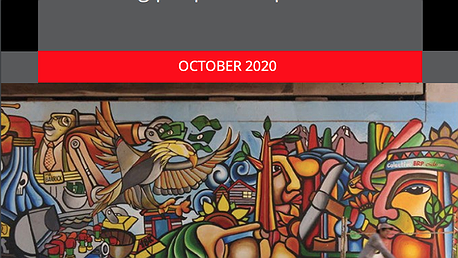
Publications, Reports & Briefings
A Rights-Based Economy: Putting people and planet first
What would it would look like if we had an economy based on human rights? CESR and Christian Aid explore this question in A Rights-Based Economy: Putting people and planet first.
_1.jpg.458x258_q85_box-0%2C386%2C1214%2C1068_crop_detail.jpg)
COVID-19: Recovering Rights Series
How might our economies be transformed in the wake of COVID-19 if our rights and dignity were placed at their center? The Recovering Rights series aims to spark collective debate on this question.
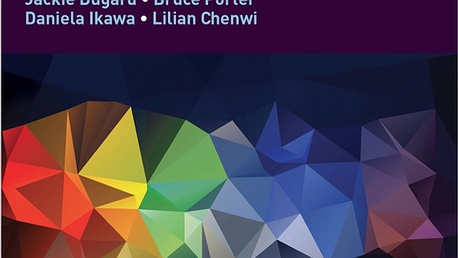
Research Handbook on Economic, Social and Cultural Rights as Human Rights
This exciting new Research Handbook on Economic, Social and Cultural Rights as Human Rights, published by Edward Elgar, provides a comprehensive, cutting edge analysis of economic, social and cultural rights. It also explores the connection between these and other rights. It combines practitioner and academic perspectives—including from CESR and a number of our partners and allies—to offer an authoritative analysis of standards and jurisprudence.
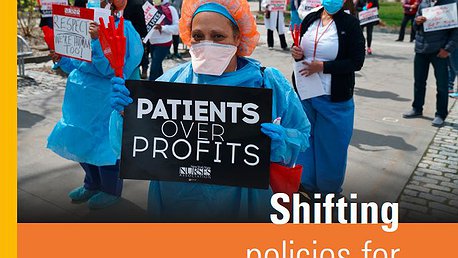
Spotlight Report Outlines "8R Agenda" for Transformational Recovery
The 2020 edition of the Spotlight Report, launched September 17, 2020, argues policy responses to COVID-19 must not return us to the deeply dysfunctional, structurally unequal status quo and offers as an alternative the “8 R” agenda for transformational recovery.
COVID-19: Resourcing Rights | October Round-Up
A round-up of CESR's work on COVID-19 from September and October 2020.
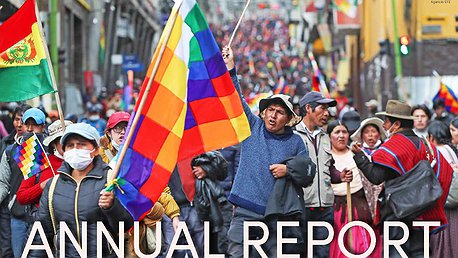
2019 Annual Report
CESR's annual report for 2019 surveys the impact of our work in a year when millions around the world took to the streets. It shares some of the progress we made—in countries around the world, in international human rights and development spaces, and in the broader field of social justice activism which we serve.
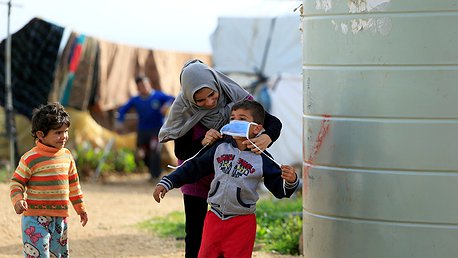
Confronting COVID: How Civil Society is Responding Across Countries | Minority Rights
Joshua Castellino from Minority Rights Group discusses the impact COVID-19 has had on minorities by reinforcing inequalities, while also providing a way to shift these paradigms going forward.
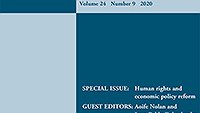
International Journal of Human Rights: Special Issue on human rights and economic policy reform
Volume 24, Issue 9 of the International Journal of Human Rights is a special issue, co-edited by Aoife Nolan and Juan Pablo Bohoslavsky. It brings together experts working on human rights and economic policy from a range of disciplinary perspectives, including economics, law, and development studies.
Civil society raises alarm about IMF’s continued backing of austerity amidst pandemic
CESR joins over 500 civil society organizations and academics in issuing a joint letter calling on the IMF to immediately stop promoting austerity around the world, and instead advocate for policies that advance gender justice, reduce inequality.
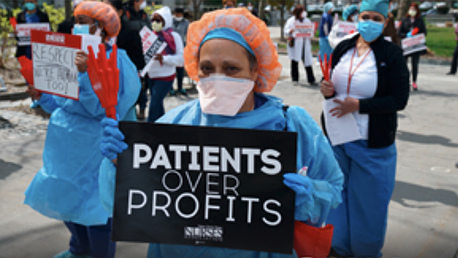
Publications, Reports & Briefings
Spotlight on Sustainable Development 2020
The 2020 edition builds on the previous years’ analysis of structural obstacles to sustainable development and proposals for transformative change, but unpacks them with relation to the COVID-19 pandemic.
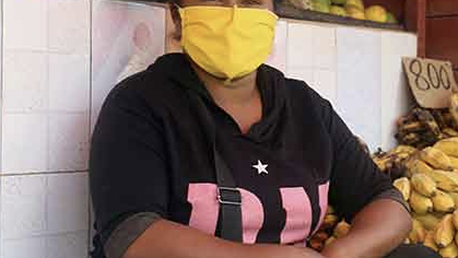
Confronting COVID-19 by Demanding Rights | August 2020 Round-Up
CESR continues to produce work that reflects on economic responses to COVID-19 and related advocacy efforts across movements and countries.
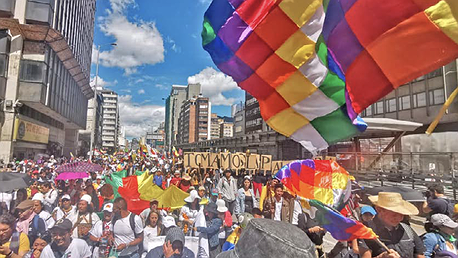
Manuals & Guides, Publications
An Advocacy Toolkit for Fiscal Justice and Human Rights
The Advocacy Toolkit assists civil society organizations who want to leverage human rights standards and strategies in their pursuit of accountability for injustices rooted in economic policy.

COVID-19: Resourcing Rights—June 2020 Round-Up
CESR is working to spark conversations about how human rights standards and commitments can be used to help shape equitable responses to the economic fallout of COVID.
Human Rights Law Must Help Shape Government Responses to COVID-19
Allison Corkery's blog post at Equal Times emphasizes how upholding socioeconomic rights in a pandemic remains an obligation—and the law.
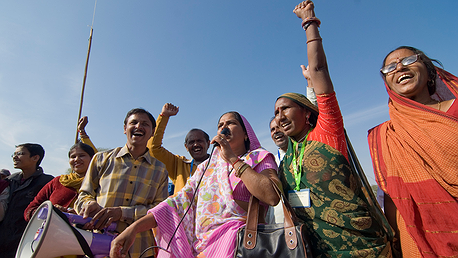
Envisioning a Rights-Based Economy: CESR’s New Strategy 2020-2023
CESR releases its 2020-2023 strategy in a moment ripe for mobilization towards systemic change. At its heart is an ambitious goal to envision a human rights-based economy and catalyze action towards it.

Time for a Rights-Based Global Economic Stimulus to Tackle COVID-19
During this pandemic, economic rescue packages—nationally and globally—must protect the socioeconomic rights of those most at risk.
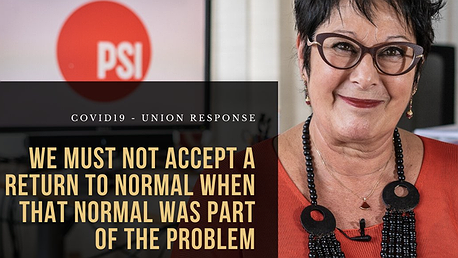
Unions Must Support a Stronger Public COVID-19 Response and a New Global Economy
CESR board member and Public Services International General Secretary Rosa Pavanelli calls for a labor movement response to #COVID19 that boldly demands a new global economy.
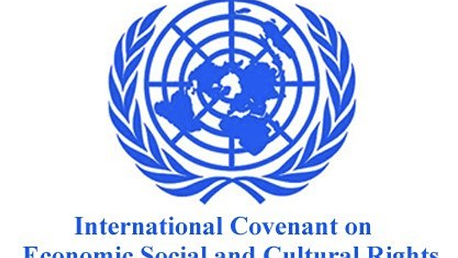
CESCR Statement on the COVID-19 Pandemic and Economic, Social and Cultural Rights
The UN Committee on Economic, Social and Cultural Rights asserts that in the midst of the pandemic, States are obligated under international human rights law to devote their maximum available resources to the full realization of all economic, social and cultural rights, including the right to health, in the most equitable manner.
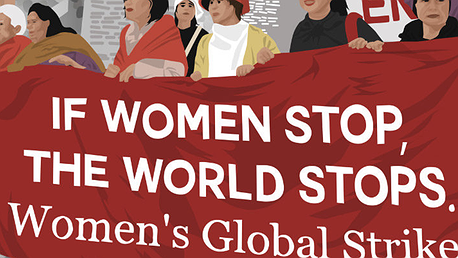
Invest in the Care Economy for a Just, Green, Feminist COVID-19 Response and Recovery
CESR and over 125 networks, trade unions, and organizations are demanding a COVID-19 response and recovery that is just, green, and feminist. As burdens frequently shouldered by women continue to worsen in the midst of the pandemic, we call for a greatly expanded investment in the “care economy."
CESR's Sergio Chaparro Discusses COVID-19 Debt Relief on International News Network France 24
Chaparro said that while the G20's agreement to suspend debt payments from pooer countries was welcome, it did not go far enough.
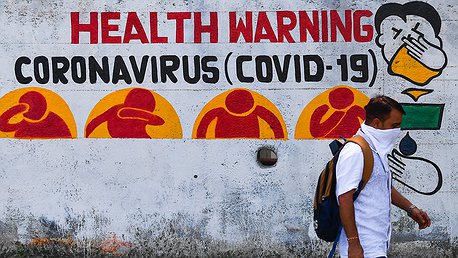
Strategy in the Time of COVID-19
As CESR takes stock of the implications of the pandemic for its longer-term organizational strategy, we reflect on the challenges and opportunities the crisis presents to leveraging human rights more effectively in struggles for economic justice.

Time for a Rights-Based Global Economic Stimulus to Tackle COVID-19
Safeguarding human rights in economic responses to the COVID-19 crisis demands governments finally lay to rest the prevailing dogma of austerity.
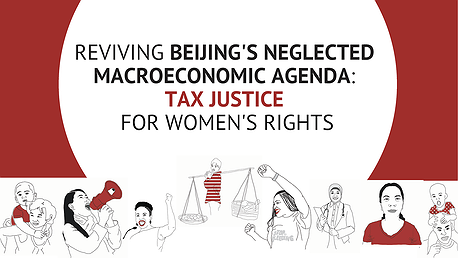
Reviving Beijing's Neglected Macroeconomic Agenda: Tax Justice for Women’s Rights
On March 13, CESR co-sponsors a CSW parallel event on tax justice for women's rights, organized by the Global Alliance for Tax Justice’s tax and gender working group.
Join Our Community Calls
Mobilizing Across Movements for a Just Recovery
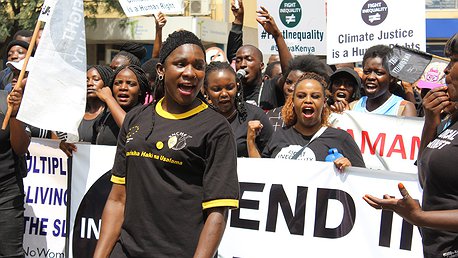
What Place for Human Rights in the Growing Movement against Inequality?
How can human rights tools and approaches help amplify the efforts and experiences of those who face inequality on a daily basis?
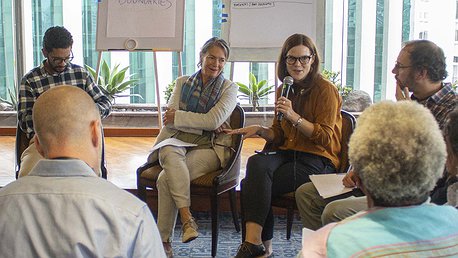
CESR Asked for Feedback to Inform Its New Strategy: This is What We Heard
CESR is grateful for survey responses from more than 30 partners and allies helping us drill down on key questions to answer as we design our next organizational strategy.
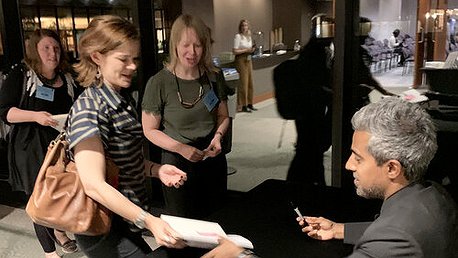
Going Against the Grain: Human Rights and Working for Change
The Going Against the Grain conference focused on local grassroots initiatives that use human rights as a practical tool to actively take on vested interests and advance economic democracy.

Global Protests Demand Human Rights Actors Tackle Economic Injustice
Ignacio Saiz' submission to OpenGlobalRightsArticulo en español

Human Rights and the Global Protests: Addressing Systems as well as Symptoms
Human rights advocates should be as concerned with the economic injustices giving rise to recent worldwide demonstrations as with the repressive responses to them.
Assessing Austerity's Impacts on Human Lives
CESR's Sergio Chaparro recently lectured about assessing the human impacts of economic austerity policies at The American University in Cairo.
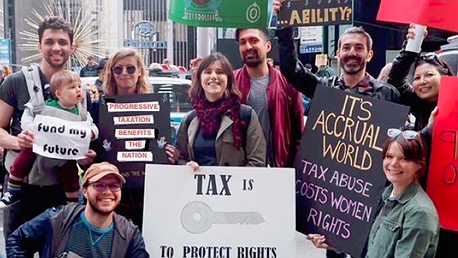
An Invitation to Help Shape CESR's New Strategy
As CESR develops its next strategic plan, Executive Director Ignacio Saiz asks for feedback to help us position ourselves for greater impact on the critical issues that inform our organizational vision.
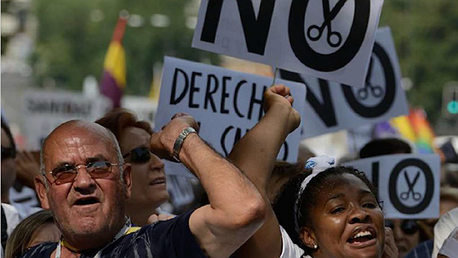
2018 Annual Report
On the twenty-fifth anniversary of our founding as the first international NGO committed to enlisting human rights in the struggle for economic and social justice, CESR made important advances in the struggles against austerity and regressive tax policies, as well as implemented innovative tools for rights monitoring and accountability.
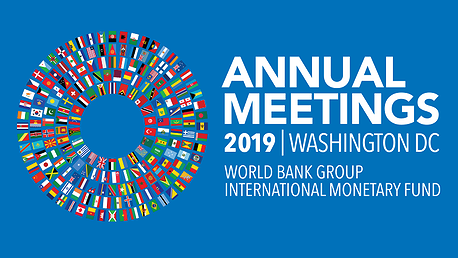
Lessons from Ecuador: Challenging Austerity and Human Rights Erosion at the IMF
CESR will be at the World Bank/IMF Annual Meetings this week, challenging the IMF’s global role in driving austerity measures that result in the steady erosion of human rights in countries such as Ecuador.
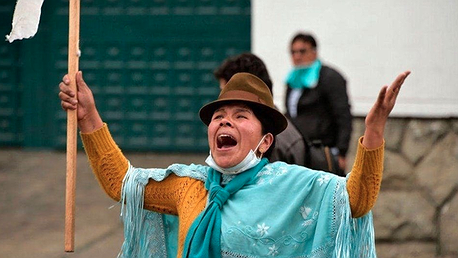
Austerity and Human Rights in Ecuador: An Urgent Appeal to the IMF
Fiscal policy cannot be imposed while ignoring people’s rights, as the Indigenous peoples’ protest movement in Ecuador has shown.
Cutting to the Core: Rethinking the IMF's Way of doing Business to Tackle Gender Inequalities
On Thursday, October 17th at the IMF/World Bank Annual Meetings, this panel discussion asks if the IMF's recent turn to acknowledging gender equality as "macro-critical" has led to meaningfully different outcomes for women affected by Fund-supported macroeconomic policies.
The IMF and Inequalities: Tensions between Structural Adjustments and Structural Transformations
This discussion on Thursday, October 17th at the World Bank/IMF Annual Meetings debates the balance between IMF-advised structural adjustments and the need for systemic changes in financial governance, to ensure governments can achieve SDG 10 and tackle inequalities on multiple levels.
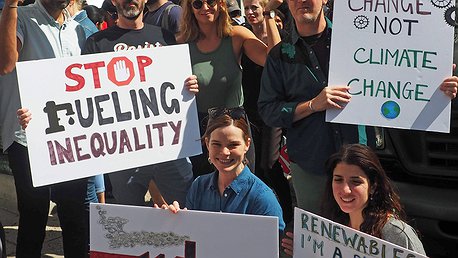
Striking at the Roots of the Climate Crisis
The climate crisis is also a human rights crisis that requires a courageous, informed and robust response from the human rights community.
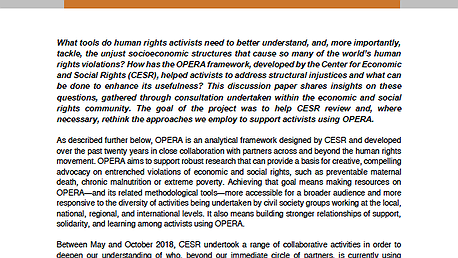
Publications, Reports & Briefings
The Next Act for OPERA
Consultations with partners who use the OPERA framework found that users need practical guidance and creative models.
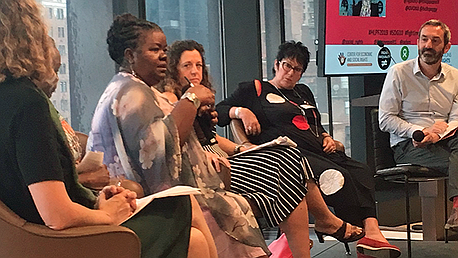
Speaking Truth to Power: Growing the Movement to Fight Inequality
Stark power imbalances are fueling extreme global inequality and cross-movement alliances within civil society are needed to combat the problem.
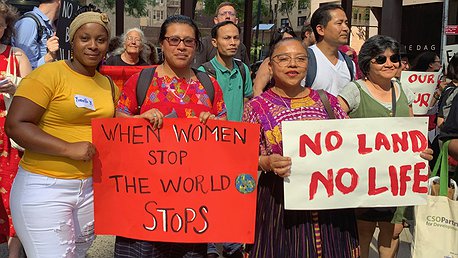
Technocratic Fiddling While the Planet Burns: Towards a Higher Level of Ambition for the HLPF
The 2019 HLPF had admirable rhetoric, but not much evidence of serious efforts at comprehensive implementation, and a host of major flaws and limitations to contend with.
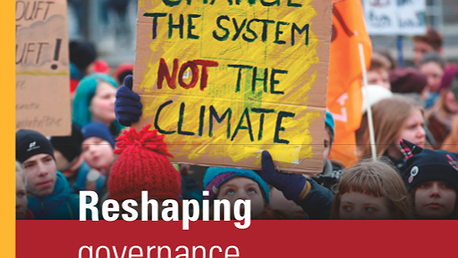
Spotlight on Sustainable Development 2019
The 2019 Spotlight Report analyzes how current global and national governance arrangements are hindering implementation of the Sustainable Development Goals.
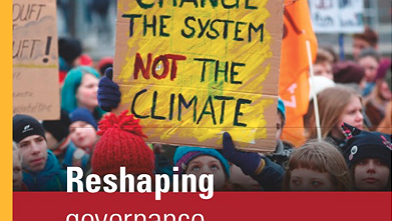
Spotlight on Inequalities at High-Level SDG Forum 2019
The Spotlight on Sustainable Development Report 2019 asserts that successful implementation of the SDGs requires more holistic and more sweeping shifts in how and where power is vested, including through institutional, legal and political commitments to realizing human rights.
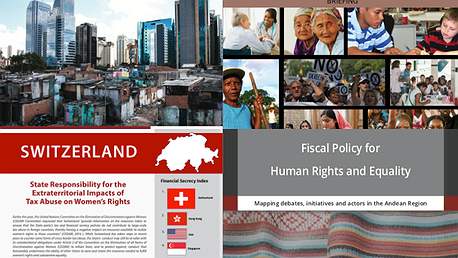
Tax Justice and Human Rights: Overview of CESR Materials
Tax Justice and Human Rights: An Overview of Materials from the Center for Economic and Social Rights
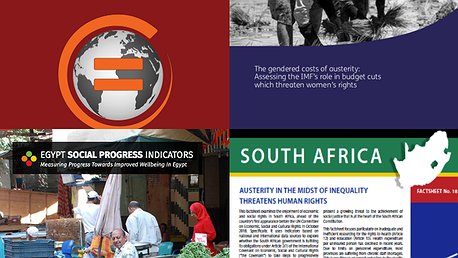
Tackling Economic Inequality Through Human Rights: Overview of CESR Materials
Tacking Economic Inequality Through Human Rights: An Overview of Materials from the Center for Economic and Social Rights
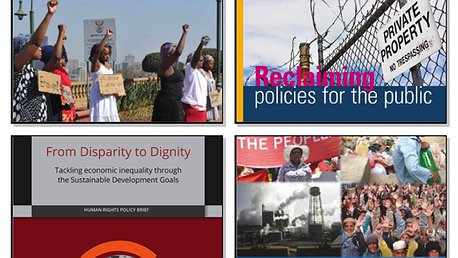
2030 Agenda for Sustainable Development: Overview of CESR materials
Key CESR publications relating to the SDGs.
Highlighting Austerity, Gender and Tax Issues at IMF, World Bank Spring Meetings 2019
In April 2019, Kate Donald (the Director of CESR’s Economic and Social Policy program) attended the IMF/World Bank Spring Meetings in Washington, DC. While there, she shared CESR’s research in several meetings with IMF officials, including work on the relationship between tax policy and gender equality, along with civil society partners and allies.
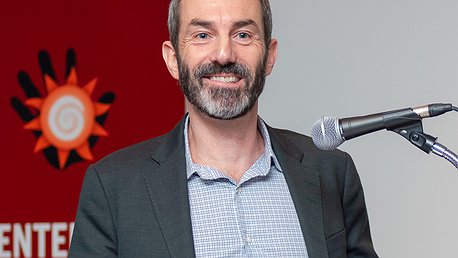
Milestones and tipping points
As 2018 ends, Executive Director Ignacio Saiz discusses the 70th anniversary of the UDHR and the 25th anniversary of CESR, both celebrated this year, as well as CESR's work supporting the UDHR's agenda of social and economic justice.
Snapshots from a Lost Decade for human rights: Ten years since the financial crisis
Slideshow illustrates the impacts of CESR's collaborative work monitoring austerity policies and other effects of the 2008 financial crisis.
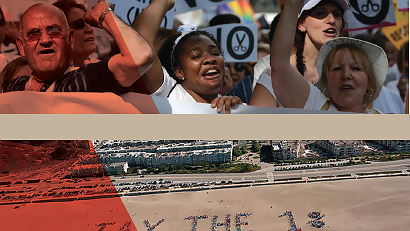
Center for Economic and Social Rights Brochure
CESR promotes socioeconomic and development policies that reduce inequality and realize economic and social rights, and we support efforts by civil society and affected communities to claim their rights.
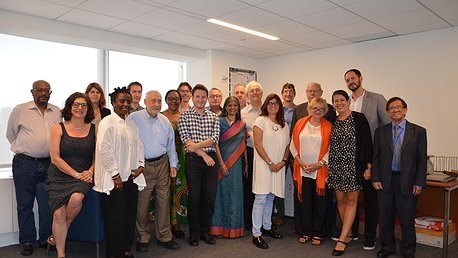
CESR allies with ICRICT to re-envision international corporate tax rules
ICRICT, an independent, nonpartisan group of global tax experts, seeks to reform the international corporate taxation system by fostering a broad-based, inclusive discussion of the rules governing how multinationals are taxed.
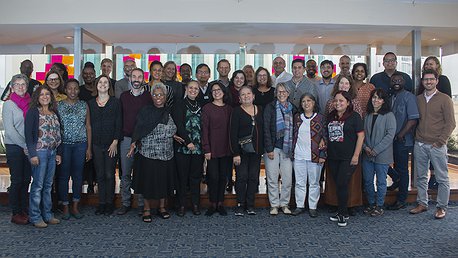
Beyond Boundaries: allying human rights with other struggles for economic and social justice
Groundbreaking gathering of diverse social justice movements affirmed the need to maintain a focus on long-term systemic change and a commitment to reciprocity and mutual learning.

Rights and resources: fostering governments' compliance with human rights
Governments can realize maximum available resources by referencing current distributional debates and establishing hard law solutions via the international human rights ecosystem.
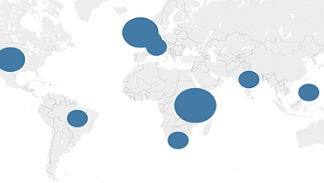
OPERA House Survey Results: A diverse set of users with a diverse set of needs
OPERA House partner survey results have given us a clearer picture of who is using OPERA, CESR's ESC rights monitoring framework, and how it is being used.

Five key takeaways from the 2018 High Level Political Forum
Valuable information competes with State propaganda and sectoral bubbles while civil society gets sidelined.
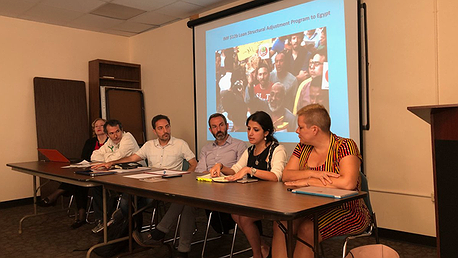
CESR at HLPF 2018: Urging Action and Exploring Alternatives
At the 2018 HLPF on Sustainable Development, CESR dedicated its efforts to recognizing that the SDGs require urgent and concrete action to remedy inequalities, with rights-based fiscal policies a key tool in that endeavor.
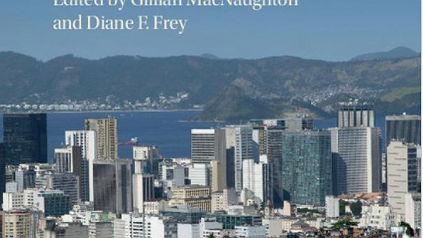
Do Metrics Matter? Accountability for Economic and Social Rights in Post- Revolution Egypt
In Economic and Social Rights in a Neoliberal World, Allison Corkery and Heba Khalil identify the ways in which quantification can help build civil society power while challenging neoliberalism in Egypt.

Spotlight on Sustainable Development 2018
Spotlight Report 2018 asserts that fundamental policy changes are necessary for the SDGs to meet their potential.
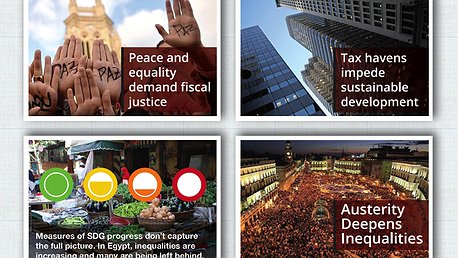
What are the obstacles to sustainable development? HLPF postcards illustrate national level lessons
Country postcards produced for the High-Level Political Forum draw attention to systemic obstacles impeding the SDGs.
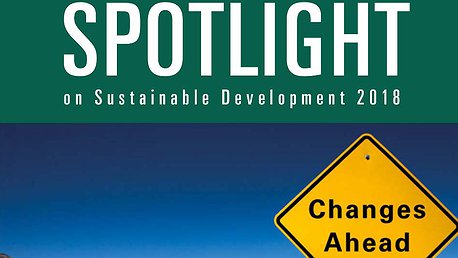
Sustainable development off-track without fundamental policy changes
Spotlight 2018 reports that the "world is off-track in terms of achieving sustainable development..."
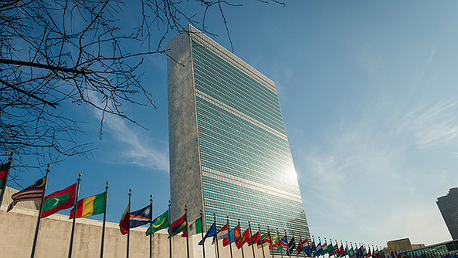
High-Level Political Forum 2018: An opportunity to bring the SDGs back on track?
At the High Level Political Forum on Sustainable Development at the UN, CESR will advocate for reorienting SDG implementation so it is compatible with human rights and fiscal justice.
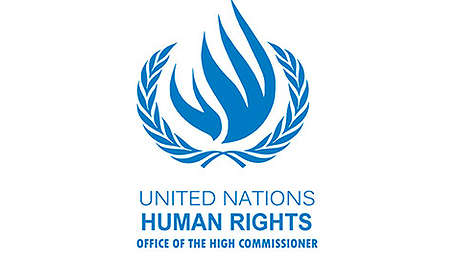
High Commissioner reports on civil society engagement with international and regional organizations
A CESR submission regarding limited civil society space at the High Level Political Forum (HLPF) on Sustainable Development was referenced in a report by the High Commissioner on Human Rights.
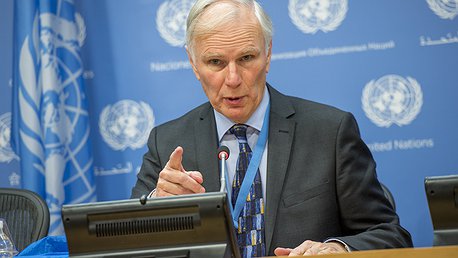
UN poverty expert urges the U.S. to “get real about taxes”
U.N. poverty expert Philip Alston's report on U.S. poverty reflects CESR concerns about effects of tax cuts on human rights and inequality.
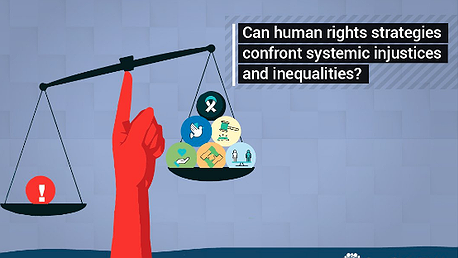
Rising inequality is a wake-up call for human rights
Media: Ignacio Saiz writes in Open Global Rights that the challenges economic inequality poses for human rights are not the death knell for the movement but a wake-up call for a more holistic approach.
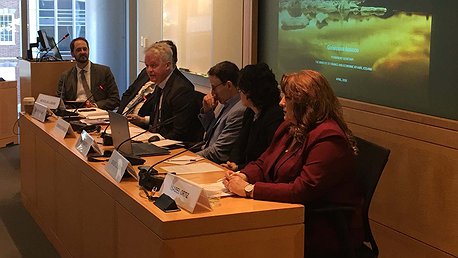
Rights in an Age of Austerity: Encouraging Fiscal Alternatives at the IMF
This spring, CESR challenged the IMF to stop supporting harmful fiscal consolidation measures, as in Brazil, Peru, Spain and Egypt,

Human rights must rise to the challenge of growing inequality, not retreat in defeat
The challenges economic inequality poses for human rights are not the death knell for the movement but a wake-up call for a more holistic approach.

Human Rights in an Age of Austerity: casualty or compass?
Media: Preventing another “lost decade” will require us to see human rights values not as merely collateral damage of economic policy, but as cogent and universal norms actively guiding tough fiscal dilemmas in the public’s interest.
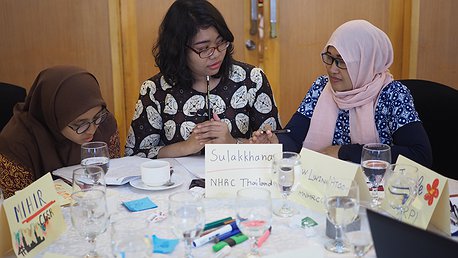
The next act for OPERA
The OPERA House project asks which tools human rights activists need to better understand and tackle the unjust socioeconomic structures that cause so many of the world’s human rights violations.

Is Human Rights Advocacy Off Track?
Media: IHRB blog post by Salil Tripathi in response to Samuel Moyne points out CESR as an organization with a track record of using human rights to campaign for distributional fairness.
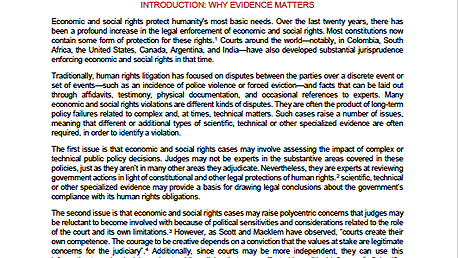
Mapping evidence in national litigation on economic and social rights
Courts rely on specialized evidence like technical data in pursuing an economic and social rights claim.

Economic inequality and human rights: towards a more nuanced assessment
The challenges facing human rights are not the death knell for the movement, but a wake up call for a more holistic approach.

The SDGs and gender equality: empty promises or beacon of hope?
Media: Kate Donald and Silke Staab's submission to Open Global Rights on the importance of linking the SDGs to human rights to advance gender equality.
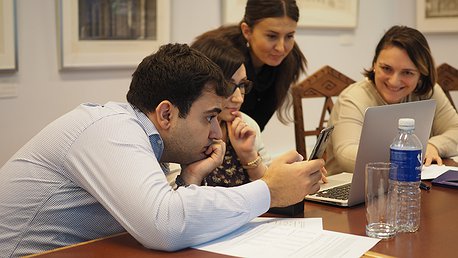
The next act for OPERA: Part 2—How do we get there?
CESR wants to deepen its understanding of who is currently using OPERA or its related methodological tools, and how. We’re inviting interested collaborators to sign up to learn more about getting involved in the OPERA House project.
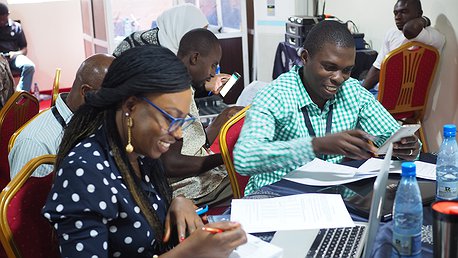
The next act for OPERA: Part 1—From where to where?
What tools do human rights activists need to better understand, and, more importantly, tackle, the unjust socioeconomic structures that cause so many of the world’s human rights violations? The Center for Economic and Social Rights is excited to embark on a new project over the next six months—the OPERA House—that seeks to answer that question.
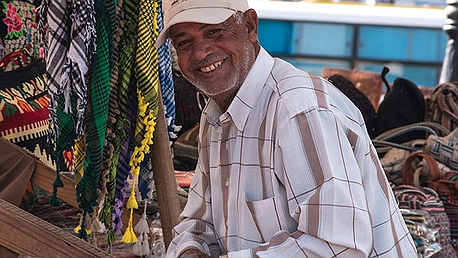
IMF Springs: Reconciling conflicting messages on austerity and inequality
At the Spring Meetings of the IMF and the World Bank this week, CESR will share its work on human rights in times of austerity, and will promote more sufficient, equitable and accountable fiscal policies that uphold human rights.
A Lost Decade for Equality, Development and Human Rights?
A Lost Decade for Equality, Development and Human Rights? Assessing Austerity and its Alternatives 10 years after the global financial crisis Friday, April 20th | 9-10.30amInternational Monetary Fund HQ2 03B-838B
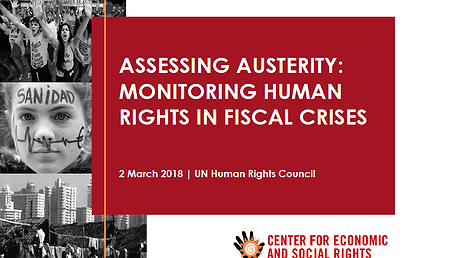
Assessing Austerity: Monitoring human rights in fiscal crises
Slide presentation to UN Human Rights Council on "Assessing Austerity: Monitoring Human Rights in Fiscal Crises"
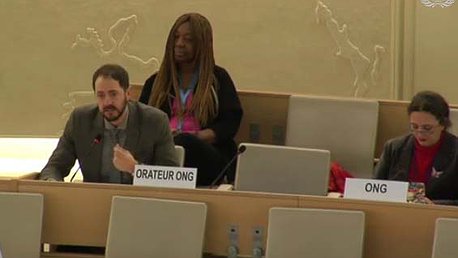
Assisting Human Rights Council as it assesses rights impacts of austerity
March 1: At UN Human Rights Council, Niko Lusiani supports Guiding Principles for assessing rights impacts of austerity and other economic reform policies.
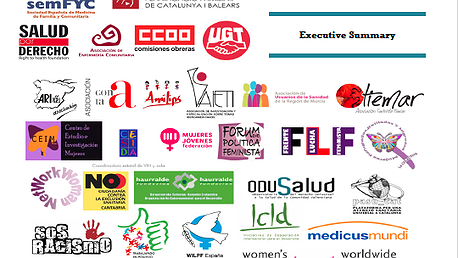
Executive summary of joint submission to UN CESCR for Spain review, March 2018
Report denounces cuts depriving health, housing, work, sexual and reproductive health rights.
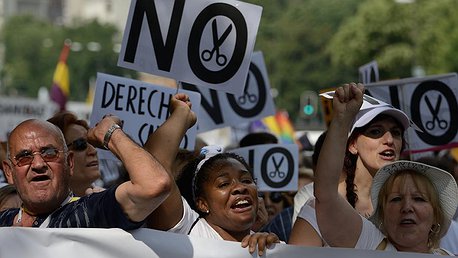
Assessing Austerity: Tools for preventing another Lost Decade for human rights
Setting out a methodological framework for assessing and addressing the human rights impacts of fiscal consolidation.
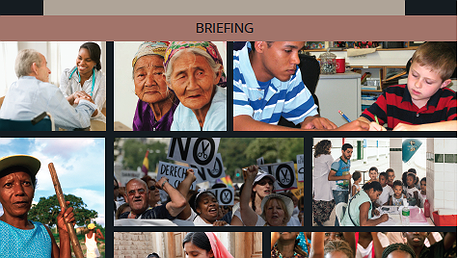
Assessing Austerity: Monitoring the Human Rights Impacts of Fiscal Consolidation
Practical guidance for policymakers seeking to address the foreseeable human rights consequences of austerity.
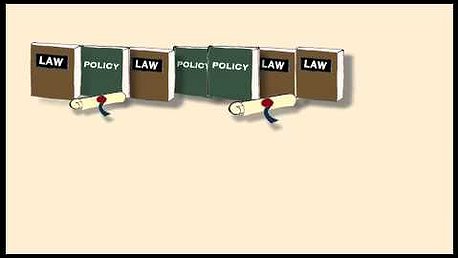
The Opera Framework
CESR has developed a simple, yet comprehensive four-step framework to analyze various aspects of the obligation to fulfill economic and social rights. Adopting the acronym OPERA, the framework incorporates different measures for specific human rights principles and standards, by framing them around four levels of analysis: Outcomes, Policy Efforts, Resources and Assessment.
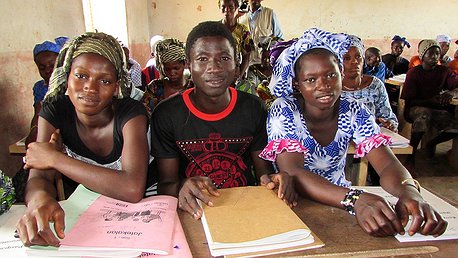
Two years on, can human rights rescue the 2030 Agenda?
Two years since the 2030 Agenda for Sustainable Development came into force, a “business as usual” approach to implementation risks betraying its lofty ambition to “transform our world.”

Agenda 2030: overview of opportunities to strengthen international and regional human rights frameworks
Remarks by CESR Executive Director Ignacio Saiz at the "Human Rights and Agenda 2030" event in Wilton Park, UK.

Rough Guide to World Development Report: Governance and the Law
Recommendations on how activists can use the WDR to advance economic and social rights.
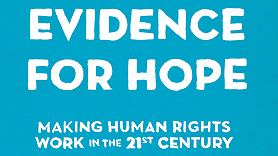
Kathryn Sikkink book cites CESR's call for a "tax policy for human rights"
Media: Human rights expert writes that CESR stands out when citing tax havens as a drain on available resources that could provide adequate economic and social rights.
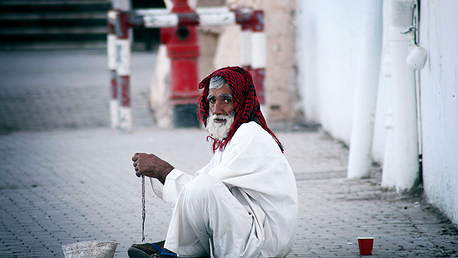
Methodological choices in human rights research are political, not just technical
Media: The methods human rights researchers and advocates use determine what injustices we see and prioritize, making methodology far more than just a technical choice.
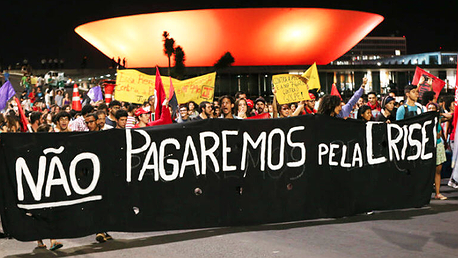
We can't afford another "lost decade"
Ignacio Saiz explains how CESR’s work this year pinpoints austerity as the single most pervasive threat to economic and social rights worldwide. Please consider making a year-end contribution toward CESR's efforts.
Ignacio Saiz at UN dialogue discusses aligning SDGs with human rights commitments
28 November: CESR Executive Director Ignacio Saiz joined UN Special Rapporteur on Extreme Poverty and Human Rights, Philip Alston, at UN dialogue focused on aligning SDGs with existing human rights commitments.
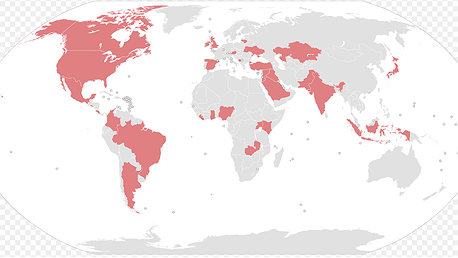
Tax abuse and human rights: closing the gap between what’s legal and what’s just.
The Paradise Papers prompt a demand for an international convention ending cross-border tax abuse and financial secrecy. A transnational problem, tackling tax abuse requires a concerted global response.
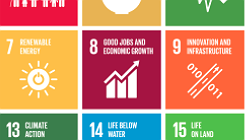
An Overview of the Agenda 2030 and its SDGs: What is the status of implementation?
CESR Remarks to the NANHRI 11th Biennial Conference, November 2017
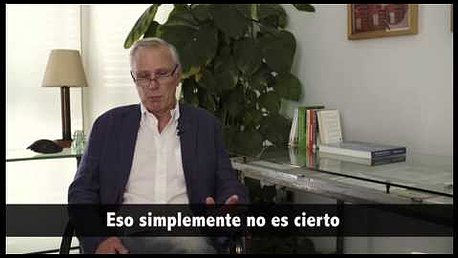
Philip Alston: Tax as a human rights issue
Philip Alston, UN Special Rapporteur on Extreme Poverty and Human Rights and former CESR board chair, addresses the International Strategy Meeting 'Advancing Tax Justice Through Human Rights' in Lima, Peru, 29 April 2015.
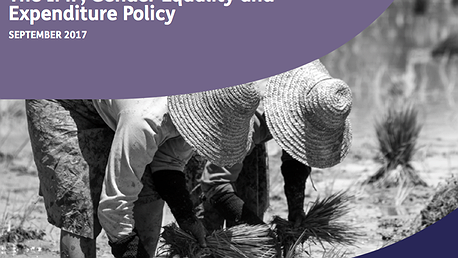
IMF can safeguard women’s equality in an age of austerity
At the IMF and World Bank Annual Meetings, CESR staffers discussed inequality, progressive fiscal policy and human rights while launching a briefing on austerity and women’s rights.
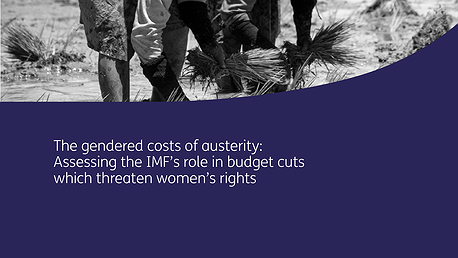
The IMF, Gender Equality and Expenditure Policy
New briefing on the IMF's fluctuating positions on austerity as it impacts women.
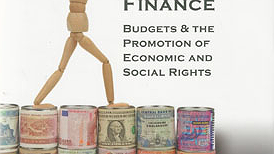
Resourcing Rights: Combating Tax Injustice from a Human Rights Perspective
From Human Rights and Public Finance: Budgets and the Promotion of Economic and Social Rights, edited by Aoife Nolan, Rory O'Connell and Colin Harvey
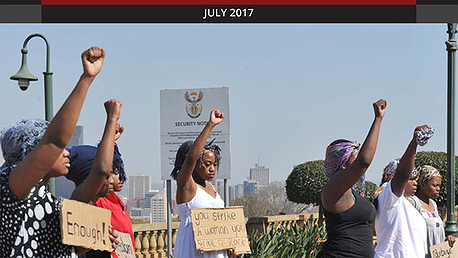
Seeking accountability for women’s rights through the SDGs
Briefing examines using the Sustainable Development Goals (SDGs) to improve accountability for women's rights.
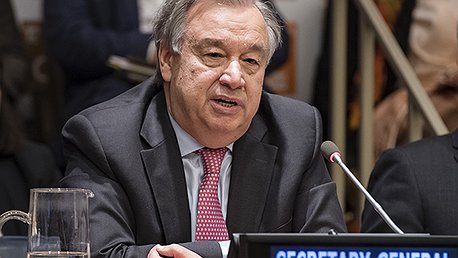
Low-level performance at High-Level Political Forum
Blog: CESR reflects on the shortcomings of the 2017 High-Level Political Forum on Sustainable Development.

Spotlight on Sustainable Development 2017
New global civil society report spotlights big business role in fuelling inequalities as UN High Level Political Forum opens.
Tax competition & avoidance "inconsistent with human rights"
Blog: New CESCR General Comment details governments’ legal duties to prevent and address the adverse impacts of corporate tax avoidance on human rights.
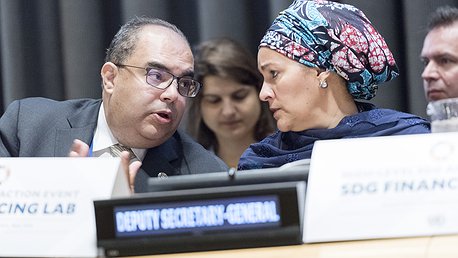
The Politics of ‘Progress’: UN report paints a highly partial picture of SDG implementation
New SDG progress report confirms civil society fears that weak monitoring is undermining the agenda.
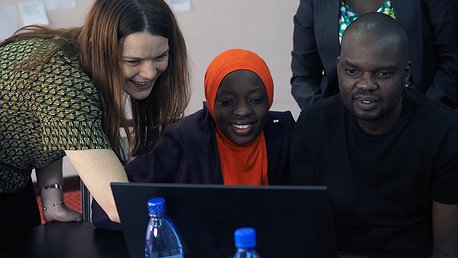
Made to measure? Using public policy guidelines as human rights benchmarks
Last month, CESR's Allison Corkery joined a group of practitioners and academics from diverse disciplines for a workshop organized by the Human Rights Methodology Lab.

Towards an international tax agenda based on rights and equality for tax justice
Panel: CESR Executive Director Ignacio Saiz's comments from a side event hosted by the UN missions of Ecuador and South Africa.
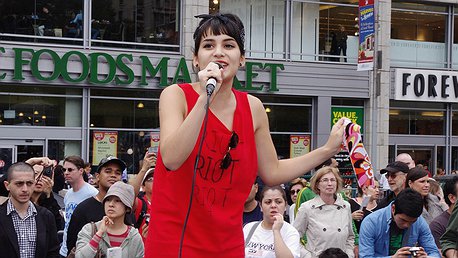
Engendering fiscal policy: Days of action demand tax justice for women
Over the past fortnight since International Women’s Day, CESR has been engaging actively in the Global Days of Action on Tax Justice for Women’s Rights.
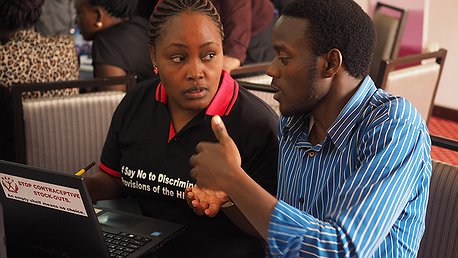
Defending dignity, from the Asia-Pacific to Uganda
CESR's recent collaborations with human rights defenders in Uganda and our partnership with the Asia-Pacific Forum are bearing fruit.
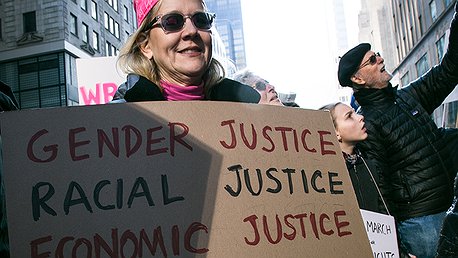
Taking a stand on tax justice for women's rights at the CSW
13-24 March 2017: The CESR team participated in various events at the Commission on the Status of Women to underline that tax justice must be a central pillar of efforts to tackle women’s marginalization.
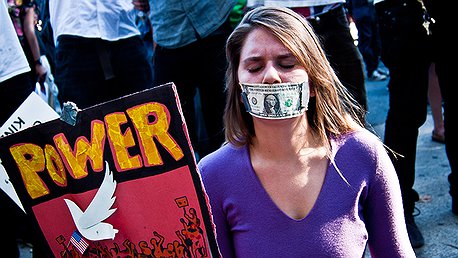
Fiscal feminism: fighting for women’s rights through tax justice
7 March 2017: CESR is bringing a fiscal focus to International Women's Day by energetically supporting the Global Days of Action on Tax Justice for Women’s Rights.
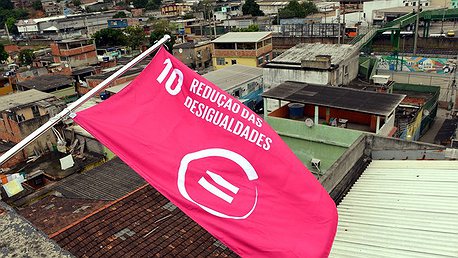
Tackling inequality: the radical potential of the Sustainable Development Goals
A contribution to the openGlobalRights debate on economic inequality and human rights by CESR's Kate Donald.

Corporate taxation key to protecting human rights in the global economy
UN expert body takes new steps to prevent corporate tax abuses, but more is needed to ensure companies pay their fair share.
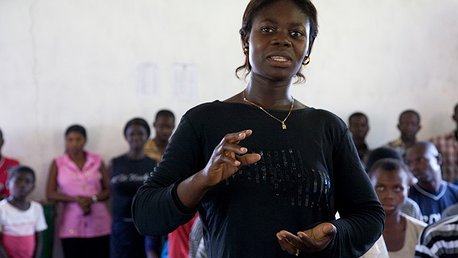
Human rights, inequality, and the "orphan SDG"
The SDGs offer an opportunity to mobilize action against inequality, but our approaches and policy solutions must be informed by human rights.
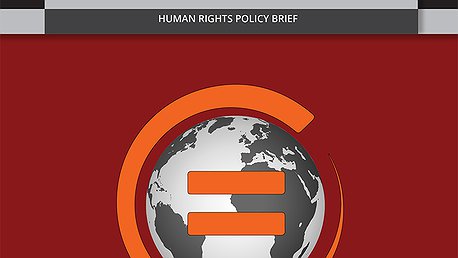
From Disparity to Dignity: Inequality and the SDGs
CESR is proud to present a new briefing examining the human rights issues at stake in SDG10 and offering a set of human rights-based policy proposals to ensure the promise of this goal is fulfilled.
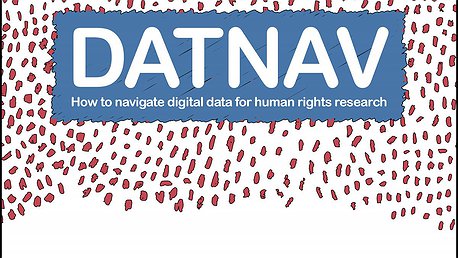
Manuals & Guides, Publications
DatNav: new guide to digital data in human rights research
Resource: DatNav is a new guide, produced with the collaboration of CESR.
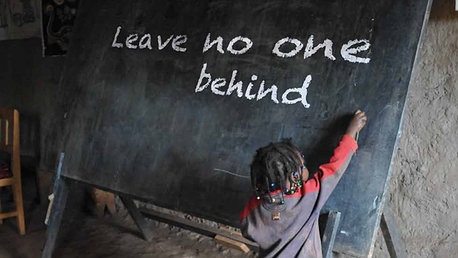
Accountability left behind in SDG follow-up and review
The UN recently hosted its first review of progress towards the SDGs, but the mechanism's weak mandate and structure risk undermining its effectiveness.
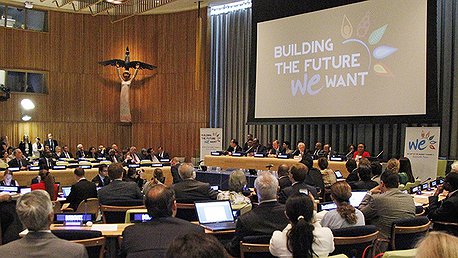
Putting the spotlight on inequality at SDG review summit
Blog: inequality takes center stage at UN, as High-Level Political Forum promises to 'leave no one behind' in SDGs.
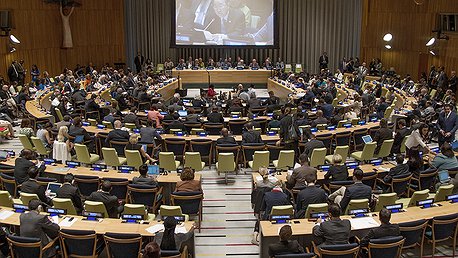
Will accountability be left behind at SDG review forum?
As the High-Level Political Forum (HLPF) convenes this week, Kate Donald and Lena Kahler examine whether Agenda 2030 will live up to its promise to “leave no one behind”.
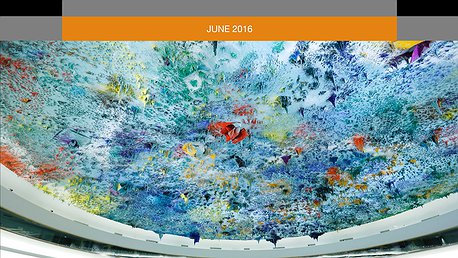
The Universal Periodic Review: a skewed agenda?
New research by CESR and the Sciences Po Human Rights Clinic reveals important shortcomings that in the UPR's attention to certain rights.

Launch event: Defending Dignity
23 March 2016: Defending Dignity: A Manual for National Human Rights Institutions on Monitoring Economic, Social and Cultural Rights
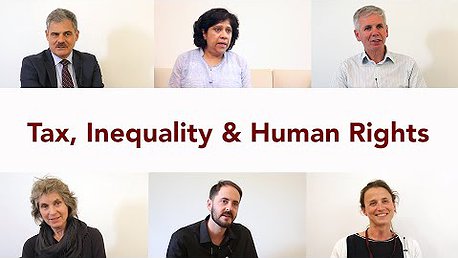
Tax, Inequality & Human Rights
Leading figures from the worlds of human rights and tax justice reflect on the critical importance of bringing these spheres of activism together.
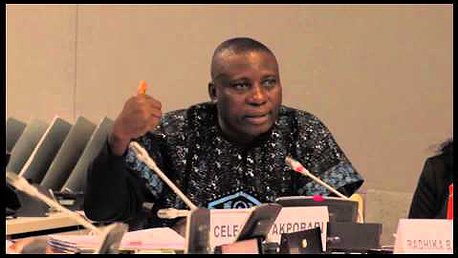
Visions and Voices for Human Rights (24 September 2013)
On September 24 CESR, together with its partners IBON International and Amnesty International, organized a side event athe the United Nations in New York to push for the proper inclusion of human rights in the post-2015 development framework. This event, which enjoyed the support of the Office of the High Commissioner for Human Rights and the permanent missions of Finland and Argentina to the United Nations, took place as the General Assembly met to discuss a process for agreeing the new development agenda. This video includes highlights from presentations at the side event.

Fiscal Policy and Human Rights in Times of Austerity
Invitation to a groundbreaking dialogue at the Inter-American Commission on Human Rights.

Tackling inequality as injustice: four challenges for the human rights agenda
Human rights can help confront economic inequality, but four key challenges must be overcome, argue CESR's Ignacio Saiz and Gaby Oré Aguilar in openGlobalRights.
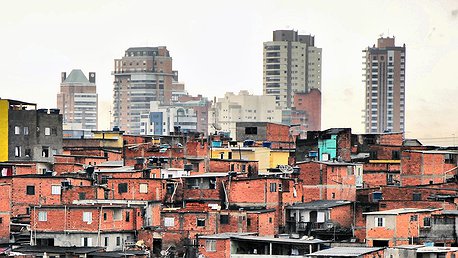
SDG targets risk missing the mark on inequality
As the UN Statistical Commission debates final proposals for the SDG indicators, there is serious concern over the absence of a robust measure of inequality.
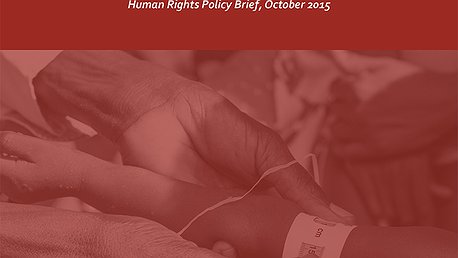
Publications, Reports & Briefings
The Measure of Progress: how human rights should inform SDG indicators
As the dust settles on the UN Sustainable Development Summit, a new CESR briefing explores how human rights should inform the selection of SDG indicators that are currently being debated.
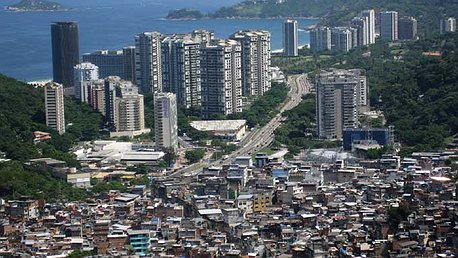
Inequality: can human rights make a difference?
CESR guest-edits a openGlobalRights debate exploring the intersection of extreme economic inequality and human rights.

Indicators of success: how best to measure Agenda 2030
Four months have now passed since Agenda 2030 was agreed, but the crucial matter of designating indicators to measure progress remains in the balance.

Publications, Reports & Briefings
Redistributing unpaid care work: why tax matters for women’s rights
Tax policies need to focus on women’s human rights and unpaid care work.
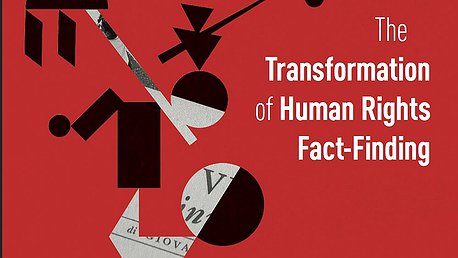
Transforming fact-finding to realize economic and social rights
New book includes a chapter by Allison Corkery, Director of CESR’s Rights Claiming and Accountability Program, on fact-finding methodologies and the multidimensional nature of chronic deprivations.
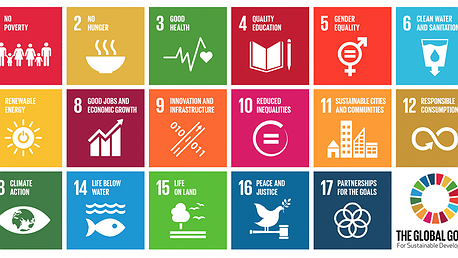
Promising the World: Accountability and the SDGs
There is one critical area where the SDGs fall dangerously short – accountability. Read the new blog by Kate Donald, Director of CESR's Human Rights in Development Program.

Factsheets, Manuals & Guides, Publications
Human Rights for All Post-2015: A Litmus Test
The Post-2015 Human Rights Caucus has developed a Litmus Test to be used to evaluate whether proposals for the post-2015 framework respect and reflect pre-existing human rights norms.
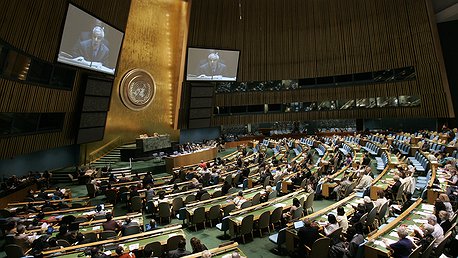
Agenda 2030: Rights on track?
Statement: As world leaders gather to adopt 'Agenda 2030', the Post-2015 Human Rights Caucus evaluates the strengths and weaknesses of the new framework.
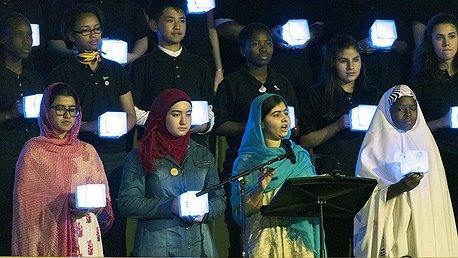
UN adopts Agenda 2030, but will governments follow through?
Statement: CESR responds to Agenda 2030, the new sustainable development goals for the next 15 years adopted by member states at the United Nations.
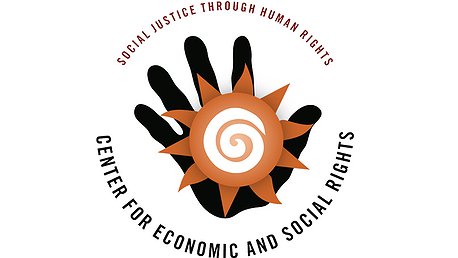
Paradigm Shift or Lost Opportunity?
Invitation: CESR invites you to panel event bringing together leading figures to reflect critically on the progress made in securing human rights in Agenda 2030.

Manuals & Guides, Publications
Defending Dignity: A Manual for National Human Rights Institutions
The Asia Pacific Forum (APF) and CESR are pleased to release a new manual designed to strengthen the role of NHRIs in monitoring economic and social rights.
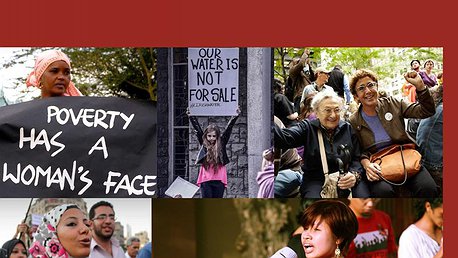
Publications, Reports & Briefings
Taking stock of two decades of economic and social rights advocacy
Publication: Leading figures from the economic and social rights movement take stock of the state of the field.
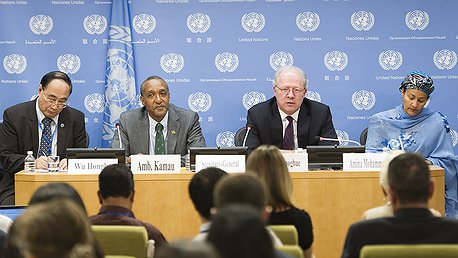
Strong commitments in final SDG text, despite sordid final compromises
Kate Donald, Director of CESR's Human Rights in Sustainable Development Program, reflects on some tense negotiations and the resulting agreement for post-2015 development.
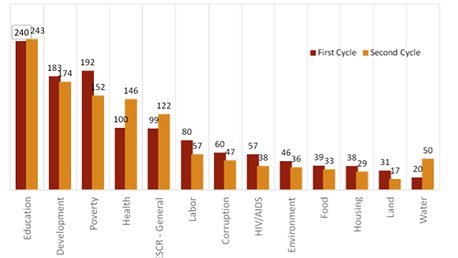
How can the UPR strengthen economic, social and cultural rights?
At a recent side event in Geneva, CESR and its partners examined the Universal Periodic Review's efforts to advance ESC rights.
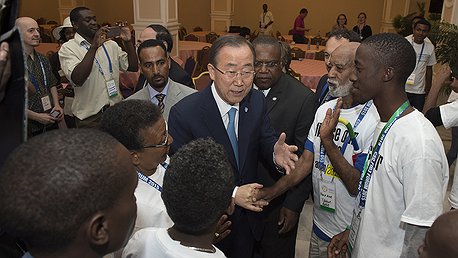
Evading accountability post-2015 will eviscerate agenda's ambition
After last week's financing for development talks left both civil society and developing countries frustrated, CESR's Kate Donald looks ahead to this week's post-2015 talks at the UN.
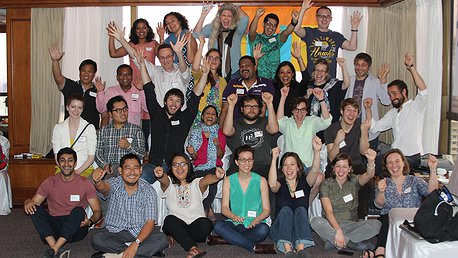
Reporting back from the Responsible Data Forum
Participants from the Responsible Data Forum - a major meeting about the role of data and new technologies in human rights documentation - talk to CESR about the lessons they have learned.
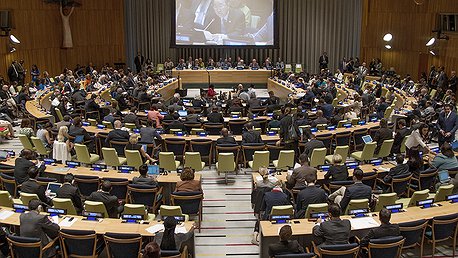
Falling at the last hurdle? Human rights and accountability in the SDGs
CESR's Kate Donald examines the strengths and weaknesses of the recently released 'zero draft' document for post-2015 development.
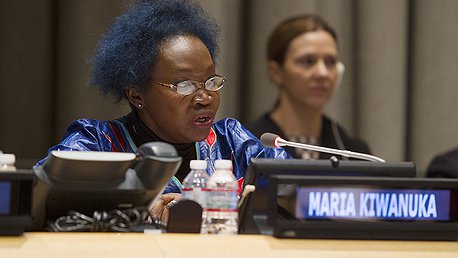
Human rights in the global partnership for sustainable development: 7 misconceptions
Niko Lusiani, Director of CESR's Human Rights in Economic Policy Program, debunks the myths surrounding human rights in a meaningful global partnership for post-2015 sustainable development.

Side event: Engaging the private sector in post‐2015 human rights and accountability
On Thursday 25 June, CESR and its partners will hold a side event at UN headquarters examining the role of the private sector in post-2015 accountability.
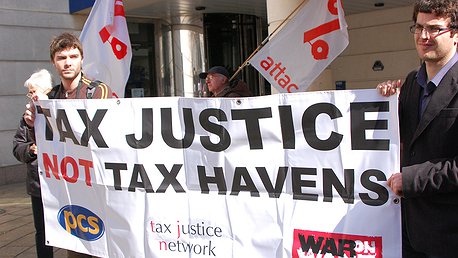
Endorse the Lima Declaration on Tax Justice and Human Rights
Joint declaration: The Global Week of Action for Tax Justice has culminated in the release of the Lima Declaration on Tax Justice and Human Rights.
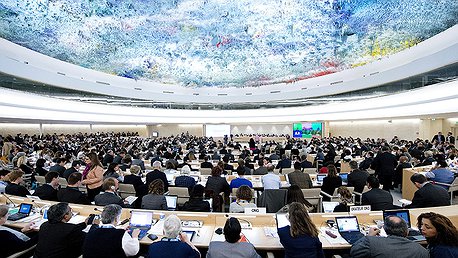
How can the Universal Periodic Review strengthen the realization of economic, social and cultural rights?
Side event: On 17 June, CESR and Amnesty International will hold an event in Geneva to discuss how the UPR can better address inequality and disadvantage around the world.
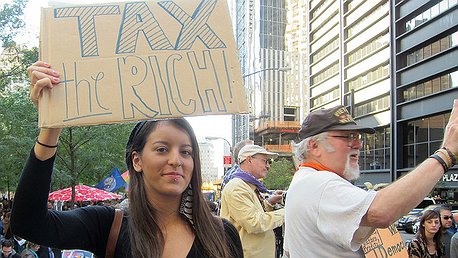
Webinar: Tax Justice and Women's Rights
Join us on June 16th, from 10:00am to 12:00pm EST, for a free webinar on tax justice and women's rights.

Publications, Reports & Briefings
Fiscal Fallacies: 8 Myths about the 'Age of Austerity'
This briefing challenges eight widespread yet misguided perceptions about economic policy in times of crisis, and suggests human rights-centered policy alternatives.

Breaking the accountability taboo in SDG negotiations
Blog: Kate Donald, Director of CESR's Human Rights in Development program, reflects on recent dynamics in the post-2015 talks.
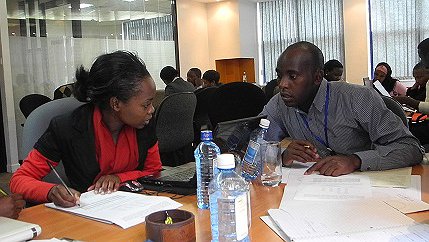
Publications, Reports & Briefings
National Human Rights Institutions can help ensure post-2015 goals deliver
Briefing: A new document from CESR and the Danish Institute for Human Rights explains the role NHRIs should play in post-2015 development.
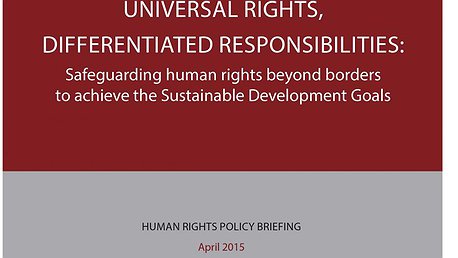
Publications, Reports & Briefings
Responsibilities beyond borders: unlocking the post-2015 stalemate
Briefing: Human rights can provide a fresh lens in post-2015 negotiations
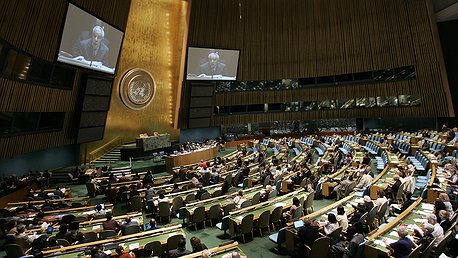
Measuring what we treasure: human rights insights for post-2015 development
As governments set about choosing indicators for the post-2015 sustainable development goals, it is crucial that calls for pragmatism don't lead to a lack of ambition.
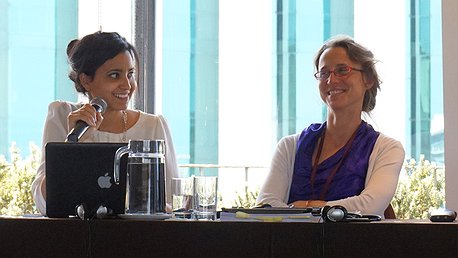
Building the foundation for tax justice through human rights
Tax justice activists and human rights defenders from all over the world came together April 29-30, 2015 in Peru for a strategy meeting designed to build a platform for future collaboration.
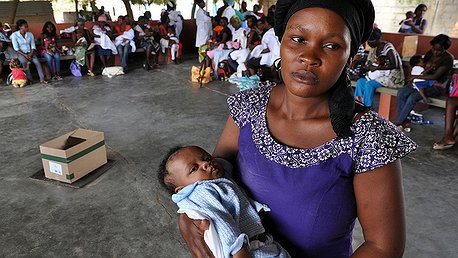
'The global partnership for development': tackling the accountability deficit
CESR's Kate Donald presents the new briefing 'Universal Rights, Differentiated Responsibilities'.
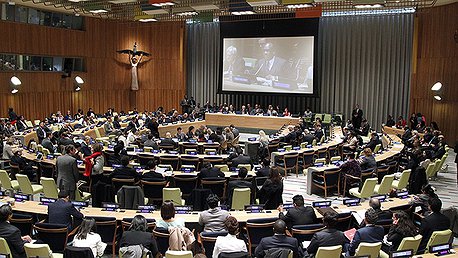
Monitoring tax spillovers in the Financing for Development Accord
CESR's Nicholas Lusiani has delivered a presentation on behalf of civil society in advance of the Third International Conference on Financing for Development.

Why the SDGs are more than just good intentions
This statement has been released by the Beyond-2015 coalition, of which CESR is a member, in reponse to two articles published by The Economist on 28 March 2015.
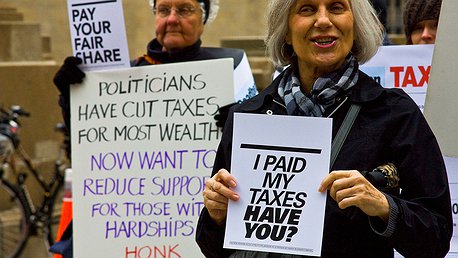
Women's rights and revenues: no gender equality without fiscal justice
While it is widely accepted that taxation plays a key role in determining income inequality, we are seeing more and more that it dramatically impacts women's equality and human rights as well.

Measuring what we treasure: exploring how human rights should inform the post-2015 indicators
Side event: On Monday 23 March, CESR together with its partners in the Post-2015 Human Rights Caucus will hold a timely debate about how to measure the SDGs and accompanying targets.
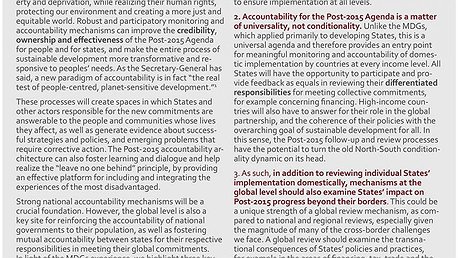
Manuals & Guides, Publications, Reports & Briefings
Accountability for the post-2015 agenda: A proposal for a robust global review mechanism
CESR and its partners have developed a proposal for a robust monitoring mechanism for post-2015 development.
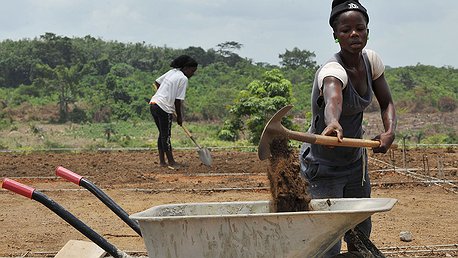
Indicators for a post-2015 fiscal revolution
Working paper: CESR and Christian Aid offer some rights-based proposals for the post-2015 indicator framework.
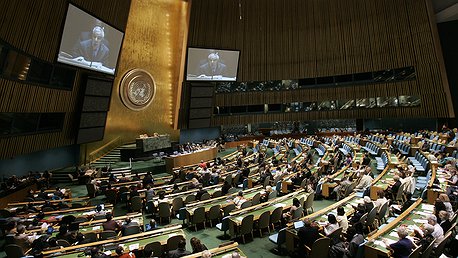
As states gear up for the post-2015 negotiations, CESR asks 'Who's afraid of accountability?'
UN presentation: CESR's Kate Donald recently spoke at a UN forum, challenging states on their aversion to accountability for development commitments.
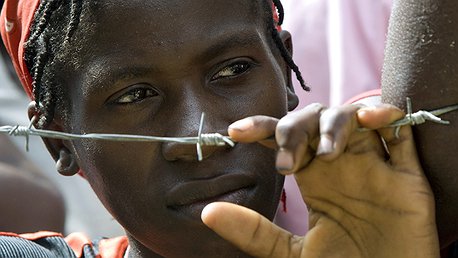
2015: a seminal year for human rights and sustainable development?
Joint statement: The Post-2015 Human Rights Caucus assesses the good and the not-so-good in the UN Secretary General's 'Synthesis Report on post-2015 development'.
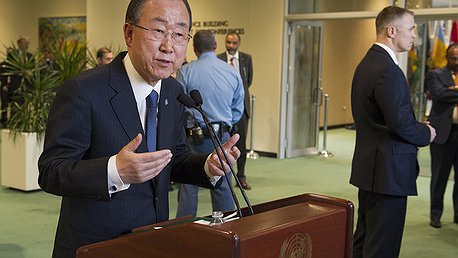
Secretary-General's Synthesis Report: moving the post-2015 debate forward?
Kate Donald, director of the Human Rights in Development program at CESR, reflects on the strengths and weaknesses of a recent milestone report on the post-2015 process
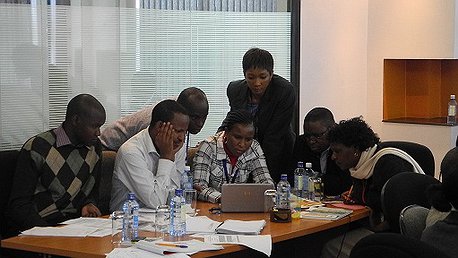
The 'data revolution': of the people, for the people?
The provision of comprehensive, quality data is essential to rights-based development, but the much-vaunted 'data revolution' must also be empowering and people-centered.
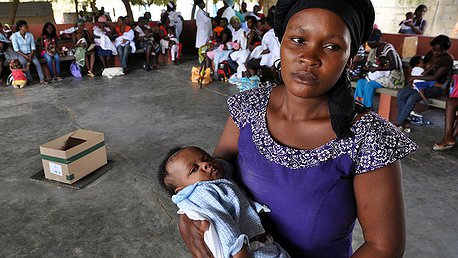
States must not restrict people's participation in post-2015 process
CESR and its allies have sent a joint letter to the UN Representatives for Ireland and Kenya, who are facilitating the next phase of negotiations on the post-2015 sustainable development agenda.
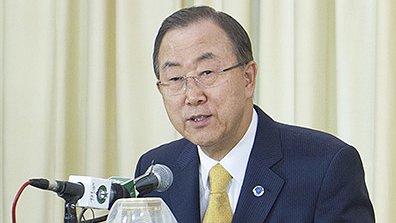
Secretary General must prioritize rights-based financing in post-2015 agenda
The Righting Finance initiative has submitted a letter to the UN Secretary General concerning the financing issues at stake in his forthcoming report for the post-2015 talks.
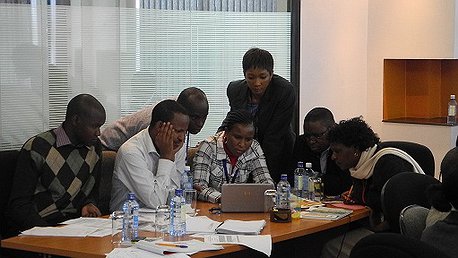
Submission to UN Advisory Group on Data Revolution for Sustainable Development
CESR has delivered a submission to the UN Secretary-General's Independent Expert Advisory Group on the Data Revolution for Sustainable Development.
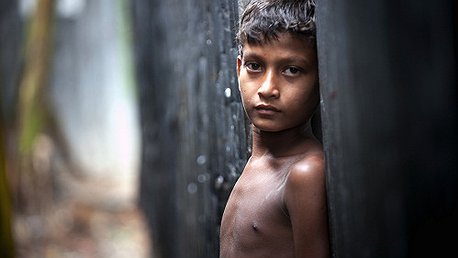
From Rhetoric to Remedy: human rights in the struggle against poverty
Panel discussion: CESR and the Center for Human Rights and Global Justice (CHRGJ) invite you to a panel discussion on the role of human rights in combatting poverty.
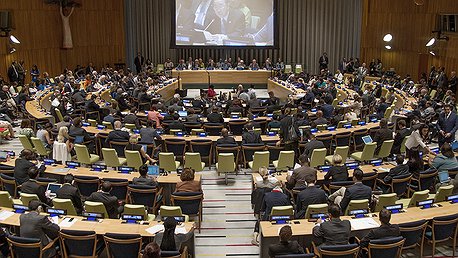
The post-2015 agenda won't deliver without human rights at the core
The open letter reproduced here has been sent to the Incoming President of the General Assembly of the United Nations, H.E. Sam Kutesa, by the Post-2015 Human Rights Caucus.

Transforming the development agenda requires more, not less, attention to human rights
Writing for Open Global Rights, CESR's Ignacio Saiz and Radhika Balakrishnan of the Center for Women's Global Leadership discuss the role of human rights in post-2015 development.
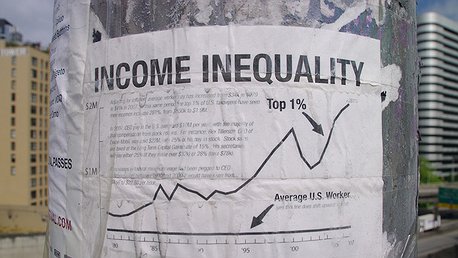
SDGs merely dead letters without fiscal justice and human rights
Unless governments agree to concrete tax and budgetary commitments which ensure robust, equitable and accountable fiscal foundations for sustainable development, the SDGs are likely to fail.
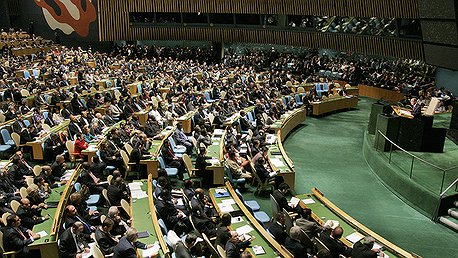
Human rights for all in sustainable development: Is the post-2015 process really delivering?
Side event: On Thursday 11 September, a side event at the United Nations in New York will assess how well the post-2015 process so far has reflected the requirements of human rights.
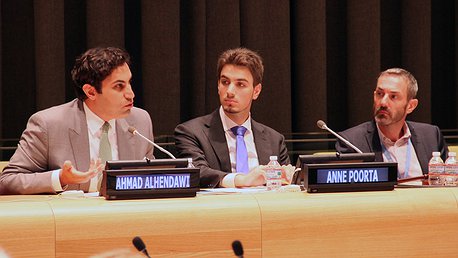
Human rights 'non-negotiable' on post-2015 agenda, says global civil society
Thousands of civil society organizations gathered at the UN headquarters have issued a strong call for human rights to be at the heart of the post-2015 development agenda.
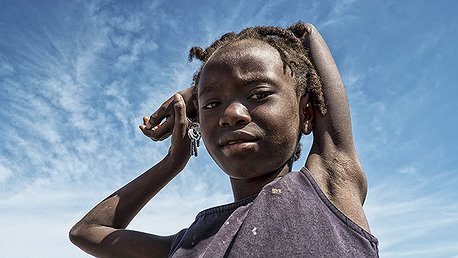
Will High-Level Forum rise to accountability challenge?
The High-Level Political Forum on Sustainable Development Goals is tackling one of the most crucial, and controvesial, issues in post-2015 development negotiations - accountability.

Strictly business: national rights institutions and the private sector
National Human Rights Institutions (NHRIs) have a critical part to play in making sure the private sector be called to account for its impact on human rights.
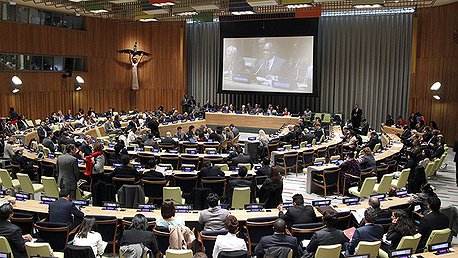
Will post-2015 development proposals meet the Human Rights Litmus Test?
CESR's Niko Lusiani addresses the UN, setting out the criteria of a 'Human Rights Litmus Test' for post-2015 sustainable development proposals.

Supporting human rights institutions in the Asia-Pacific region
Partnership: CESR is working closely with the Asia Pacific Forum to support the work of National Human Rights Institutions in Malaysia, New Zealand and Palestine.
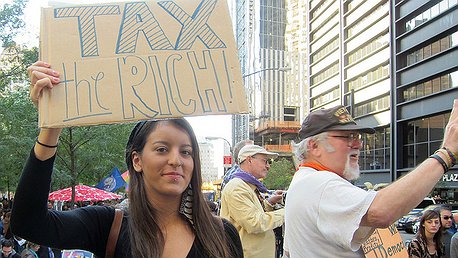
Only an economic revolution can defuse the global inequality timebomb
Op-ed: Writing in the Guardian Development Blog, CESR's Nicholas Lusiani and Christian Aid's Helen Dennis explain the need for a fiscal revolution in development financing.
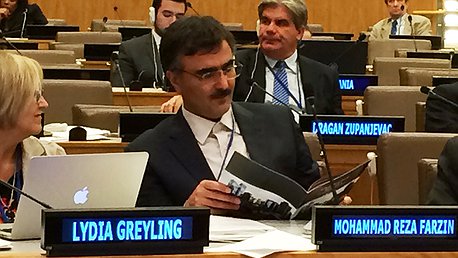
UN Financing Committee hears call for post-2015 fiscal revolution
CESR has urged the UN Committee tasked with devising a post-2015 development financing strategy to tackle the fiscal injustices undermining sustainable development and human rights.
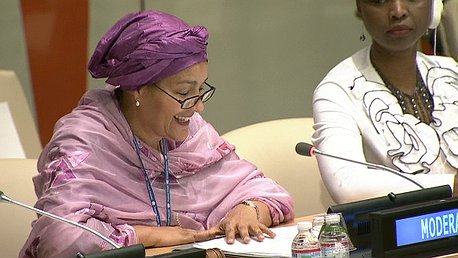
Accountability moves to the fore of the Post-2015 debate
CESR contributes to United Nations discussions on monitoring and accountability in the post-2015 development agenda.
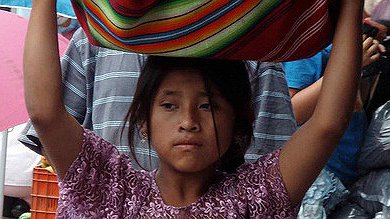
OWG inches closer to human rights for all post-2015, but still a long road ahead
Joint statement: A coalition of organizations calls on the Open Working Group on Sustainable Development Goals to make sure the call for human rights is properly reflected in their deliberations.
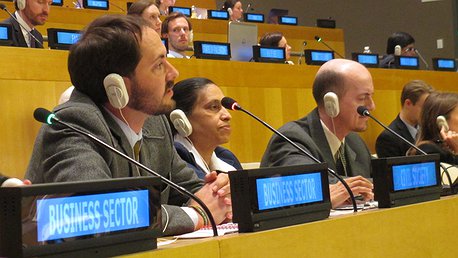
Human rights hold key to financing post-2015 development
News: CESR's Niko Lusiani addresses major meeting of UN development bodies, explaining why post-2015 financing must be anchored in human rights.
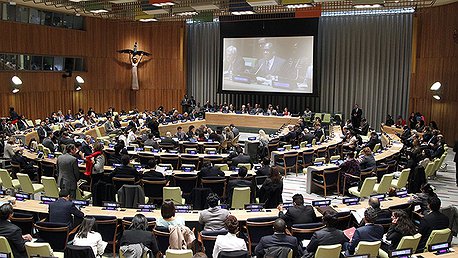
Civil society rallies to prevent privatization of post-2015 process
The private sector is threatening to drown out civil society's demands for a human rights-based sustainable development framework.
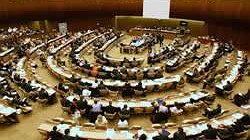
OWG proposals risk sidelining consensus on human rights-centered sustainable development
Statement: CESR is calling on members of the Open Working Group on Sustainable Development Goals to renew their commitment to placing human rights at the core of the post-2015 framework.

As states set sights on inequality, it's time to get fiscal
Rising inequality is an issue whose time has finally come. But if governments are serious about halting this trend in the post-2015 development agenda, they will need to tackle the injustices of our current tax and fiscal systems.

In pursuit of a better, fairer world
Op-ed: Writing for Al-Jazeera, CESR Communications Coordinator Luke Holland examines the importance of human rights standards in addressing inequality in the post-2015 development agenda.

Putting rights at the centre of 'data revolution'
Speaking at a UNDP conference on 'Data and Accountability', CESR's Allison Corkery sets out the rights issues at stake in informational planning for the post-2015 era.
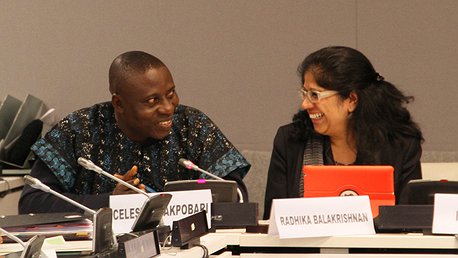
Visions and Voices for Human Rights
Forum summary: On 24 September 2013 CESR and its partners organized a side event at the UN General Assembly to discuss integration of human rights into the post-2015 sustainable development agenda.

Power of Numbers initiative offers important insights for post-2015 agenda
A new initiative led by two members of CESR's board offers important guidance on target-setting and measurement of progress from a human rights perspective.
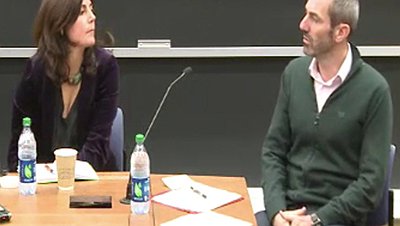
Voices for Social Justice: The UN Special Procedures
On 22 October 2013, CESR and Columbia Law School's Human Rights Institute hosted a conversation with Magdalena Sepúlveda and Olivier de Schutter.
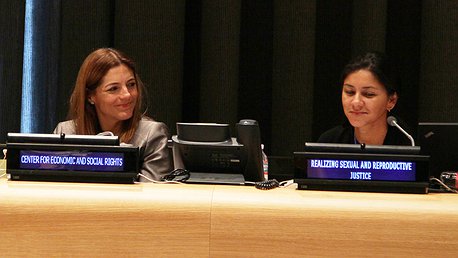
Human rights take centre stage at UN post-2015 debate
Member states at the Open-Working Group on the Sustainable Development Goals have reiterated the call for human rights to be a foundation stone of the post-2015 agenda.
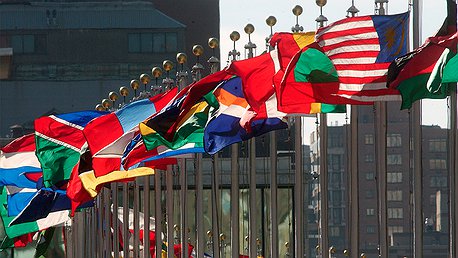
Side event: Human Rights at the Core of Sustainable and Just Development
Invitation: On Friday 13 December, CESR and its partners will hold a side event in parallel to the sixth session of the Open Working Group on the Sustainable Development Goals.

Over 350 groups call for human rights in core of post-2015 development plan
Joint statement: As governments meet at the UN to debate the future sustainable development agenda, over 300 organizations have called for human rights to be at the core of the new framework.

Austerity undermining rights says CoE Commissioner
Publication: A new Council of Europe Issue Paper, commissioned from CESR, assesses the human rights impacts of austerity measures and sets out an agenda for change.
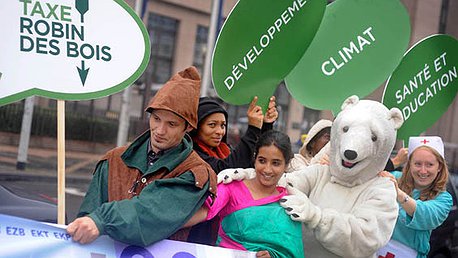
FTT: Robin Hood advocates undeterred by challengers
Blog: Momentum towards the implementation of a financial transactions tax in Europe is facing new obstacles. With success seeming so close yet so far, campaigners are redoubling their efforts.
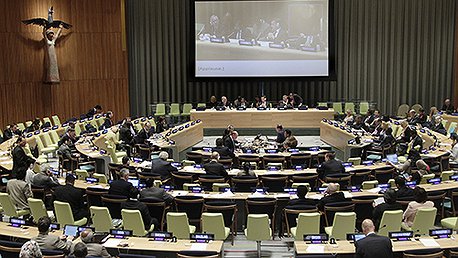
UN General Assembly: will human rights rhetoric become reality?
Governments at the UN General Assembly have recognized that human rights must be at the core of a new global development agenda. But will these rhetorical commitments be translated into practice?
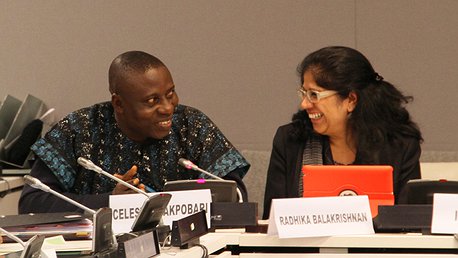
Visions and Voices for Human Rights: Integrating human rights into the post-2015 agenda
On September 24 CESR and its partners hosted a forum on integrating human rights into the post-2015 development framework at the United Nations headquarters in New York.

'OPERA' gets animated: bringing ESCR monitoring to life
A new animation produced by CESR, in collaboration with the Asia Pacific Forum (APF), offers a short introduction to the OPERA Framework for monitoring fulfilment of economic and social rights.
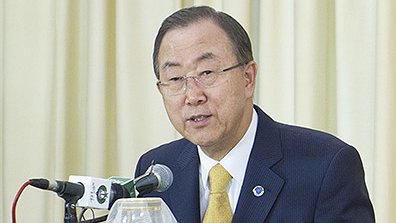
UN Secretary General backs calls for human rights-based post-2015 agenda
Statement: Key report to General Assembly outlines Secretary General's vision of 'a world we have a right to expect'.
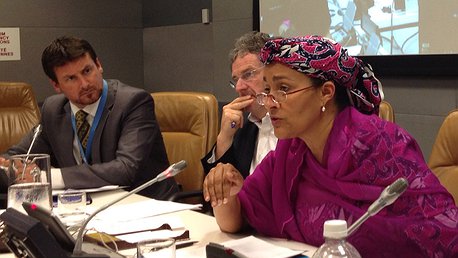
Accountability in the Post-2015 Development Framework: What role for National Human Rights Institutions?
Thanks to their unique bridging role between the government and civil society, together with their human rights expertise, NHRIs can play a key role in the post-2015 framework.
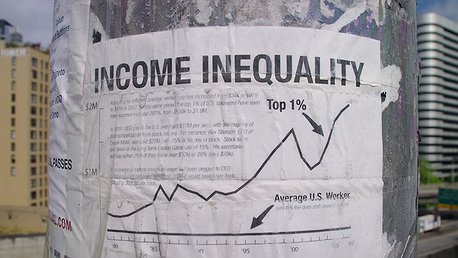
Human rights and social justice: the in(di)visible link
Op-ed article: CESR Executive Director Ignacio Saiz and CESR Chairperson Alicia Yamin challenge outdated notions regarding human rights and social justice in an Open Democracy op-ed article.
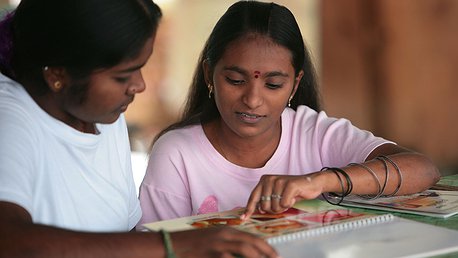
'OPERA' tour strikes a chord with partners around the world
In recent months, CESR has been sharing its OPERA framework with our partners in New Zealand, Malaysia and Slovenia.
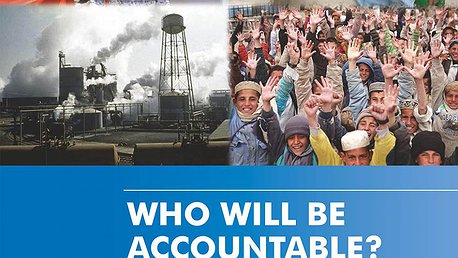
Publications, Reports & Briefings
'Who Will Be Accountable' for the SDGs?
Proper accountability mechanisms must be incorporated into post-2015 development plan if it is to avoid the pitfalls of the MDGs.
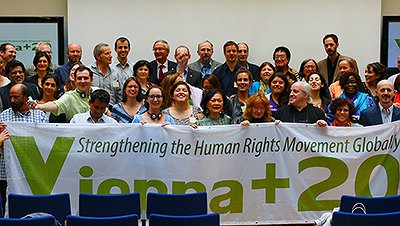
Vienna+20 declaration demands primacy of rights
Joint declaration: CESR has joined a new civil society declaration released to mark the 20th anniversary of the Vienna Declaration and Program of Action.
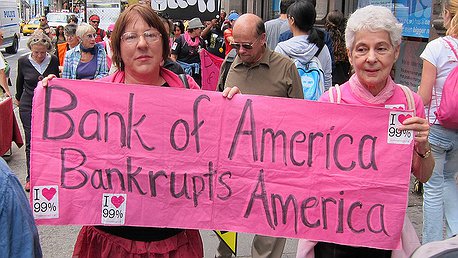
Accountability Not Austerity Can Help Prevent Next Financial Crisis
Niko Lusiani argues that systematic failures in accountability also helped cause the global financial crisis.

High Level Panel recommendations fall short of the human rights litmus test
Statement: CESR responds to the recent report delivered by the High-Level Panel on the Post-2015 Agenda, which will feed into the design of the future development framework.
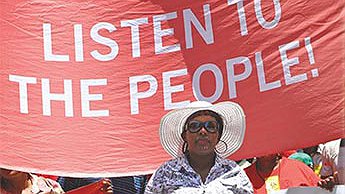
New publication and panel event highlight need for human rights in post-2015 agenda
Two events at the UN headquarters in New York present findings from global consultations on the post-2015 agenda and launch a new publication on the role accountability must play in the framework.
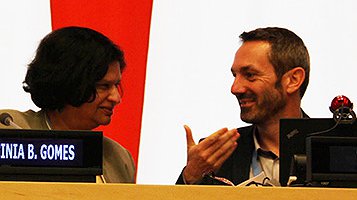
Major advance for social justice as 'OP' comes into force
On May 5 the long-awaited Optional Protocol to the International Covenant on Economic, Social and Cultural Rights finally entered into force.
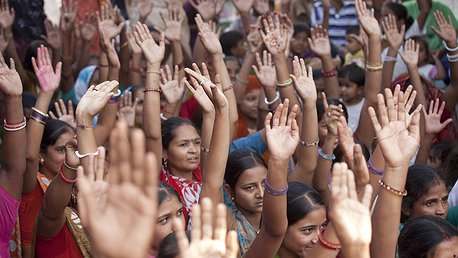
Joint statement: Human Rights for All Post-2015
A new joint statement, endorsed by 49 leading human rights and development organizations so far, calls for human rights be placed at the core of the new development agenda.
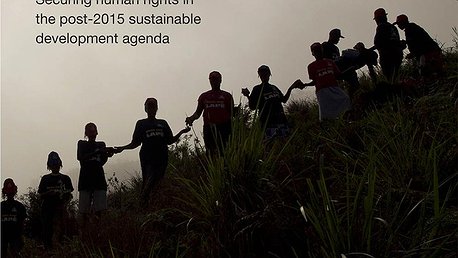
Publications, Reports & Briefings
A Matter of Justice: securing human rights in the post-2015 sustainable development agenda
The human rights framework can provide operational principles and standards of conduct to ensure the post-2015 development plan delivers on its promises.
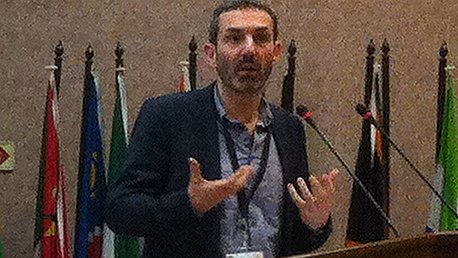
UN conference hears resounding call for human rights-based governance post-2015
The need for more just forms of governance took center-stage at the UN Thematic Consultation on Governance and the Post-2015 Framework in Johannesburg last week.
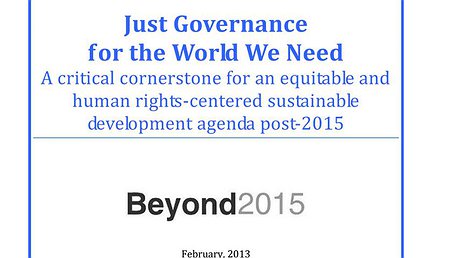
Beyond 2015: Just governance must be a cornerstone of the sustainable development agenda
A new Beyond-2015 paper co-cordinated by CESR explains that just and effective governance must become a central pillar of any future global development framework.
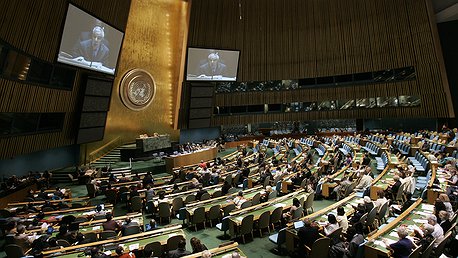
Bringing a strong human rights voice to the UN Panel on post-2015
UN consultation: Human rights concerns have been highlighted extensively in a new United Nations consultation report on the form and content of a future development framework.

New global mechanism brings economic and social justice one step closer
The Optional Protocol to the International Covenant on Economic, Social and Cultural Rights will enter into force on May 5, after Uruguay became the tenth country to ratify.
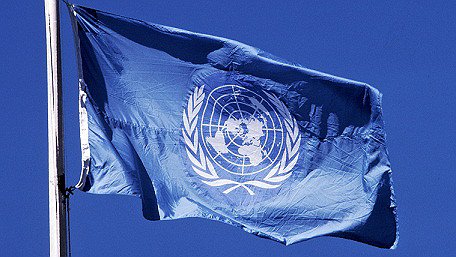
Promoting Empowerment through the Guiding Principles on Extreme Poverty and Human Rights
Side event: On Friday February 8, CESR Executive Director Ignacio Saiz will join leading figures from the spheres of human rights and diplomacy for a panel event at the UN headquarters in New York.
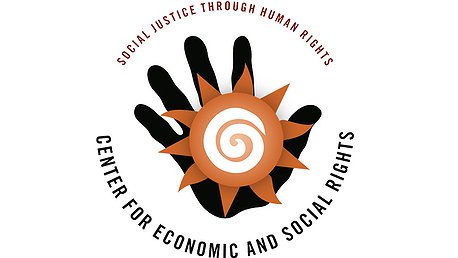
Twenty years of economic and social rights advocacy
CESR event: The Center is hosting a panel event on Monday 4 February in New York University which will explore progress in field of economic and social rights since the Vienna Declaration.

King, Keynes and Obama's legacy at the IMF
As the US marks Martin Luther King Day, CESR Senior Researcher Niko Lusiani calls for the iconic leader's social justice vision to be remembered in contemporary social and economic policy.
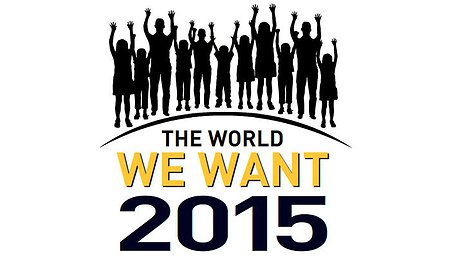
CESR responds to High-Level Panel questionnaire on the post-2015 development agenda.
UN consultation: CESR has contributed to an online consultation organized by the United Nations High-level Panel on the Post-2015 Development Agenda.
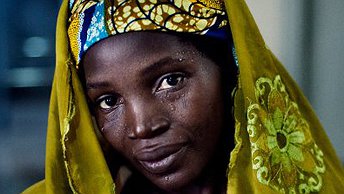
The year ahead: a critical step towards the world we want post-2015
The new global development framework must be grounded in the universal and pre-existing set of human rights norms, standards and operational principles.

Bringing the financial sector to book for rights abuses
A task force of human rights organizations and networks, including CESR, has launched a new website devoted to highlighting the impacts of poor financial regulation on human rights around the world.

From Kenya to Kuala Lumpur: boosting the role of national human rights institutions
2012 has seen the Center working closely with national human rights institutions in Kenya, New Zealand and Malaysia to boost their capacity to advance economic and social rights in their countries.

Time to Make the Financial Sector Accountable to Human Rights
Press release: New website to expose financial sector abuses launched on International Human Rights Day
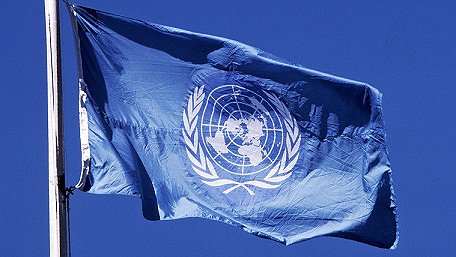
UN Committee stresses need for human rights in post-2015 agenda
The Committee on Economic, Social and Cultural Rights has issued a letter calling for human rights to be properly integrated into future development plans.
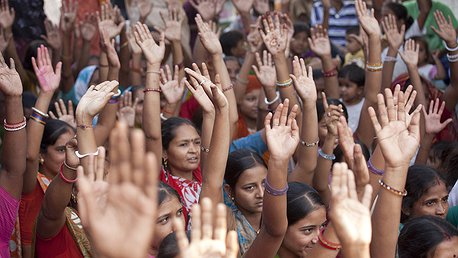
Social accountability efforts seek better national and global economic governance
In a four-part analysis article, CESR Research Consultant Rick Rowden explores the increasing pressure for social accountability in the economic and financial spheres. (part 3)
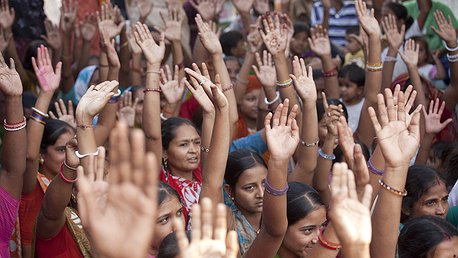
Social accountability efforts seek better national and global economic governance
In a four-part analysis article, CESR Research Consultant Rick Rowden explores the increasing pressure for social accountability in the economic and financial spheres. (part 2)

Social accountability efforts seek better national and global economic governance
In a four-part analysis article, CESR Research Consultant Rick Rowden explores the increasing pressure for social accountability in the economic and financial spheres. (part 1)
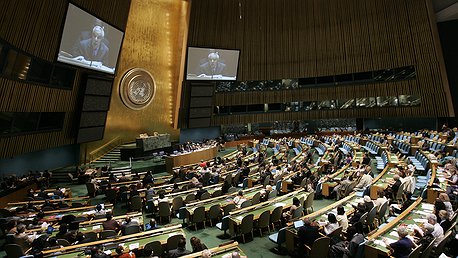
UN expert body warns world of austerity threat to human rights
The UN General Assembly has been told that unchecked austerity measures are undermining human rights around the world
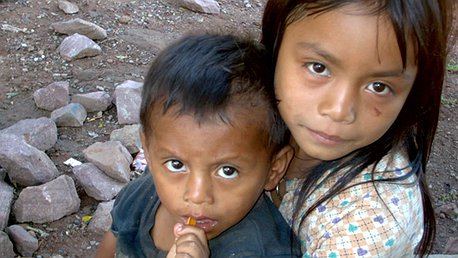
The 'OPERA' Framework: meeting the challenge of economic and social rights monitoring
In order to hold governments to account for their obligation to fulfill economic, social and cultural rights (ESC rights), advocates and activists need practical tools to monitor their conduct, evaluating it against multifaceted principles such as progressive realization, minimum core obligations, maximum available resources and non-discrimination

Integrating Quantitative and Qualitative Tools to Monitor the Obligation to Fulfil ESCR
Article: In this article in the Nordic Journal of Human Rights we briefly analyse the range of new methodologies which have been developed to monitor the positive obligation to fulfil ESCR, and discuss the OPERA Framework.

CESR contributes to major UN publication on future of MDGs
CESR Researcher Allison Corkery has contributed a chapter to the new UNDP publication 'Accelerating Achievement of MDGs by Ways and Means of Economic and Social Rights'.

Post-MDGs: what next for a global development agenda that takes human rights seriously?
In June, a High Level Panel will be convened by the United Nations to take the lead in framing a proposed set of successor goals to the Millennium Development Goals (MDGs), which are to be adopted by 2015, when the MDGs officially expire. Human rights should be the organizing framework for the new development agenda.
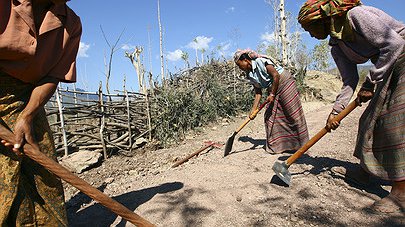
Blame it on Rio: Rights sidelined at crucial conference
The decision-makers gathered in Brazil did commit to establishing a set of Sustainable Development Goals, with the United Nations General Assembly to appoint a group of 30 experts by September to design the new “SDGs”.

UN urges governments to prioritize human rights over austerity
News article: The UN Committee on Economic, Social and Cultural Rights (CESCR) has issued an open letter urging governments to prioritize human rights in times of economic crisis.
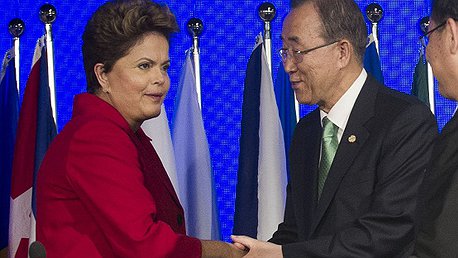
Human Rights after Rio+20: failure is not an option
As the dust settles on a disappointing Rio+20 conference, the CESR blog explains why human rights norms and standards can and must inform the future course of global development.
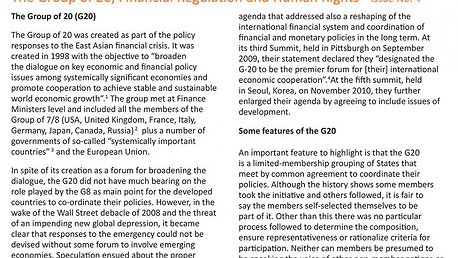
Publications, Reports & Briefings
The Group of 20, Financial Regulation and Human Rights
Briefing: The fourth publication in the 'Righting Financial Regulation' series examines how human rights should inform the G20's role in managing the financial system.

A Bottom-Up Approach To Righting Financial Regulation
CESR has joined the Steering Committee of the Righting Financial Regulation project, a new coalition seeking to confront the human rights implications of the global economic crisis.

UN rights experts join calls for FTT as Global Week of Action gets underway
News: A group of UN human rights experts today released a statement, produced in close collaboration with CESR, echoing the growing calls for a global financial transactions tax.
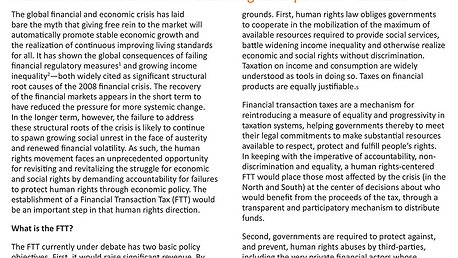
Publications, Reports & Briefings
Financial Transactions Tax: A Human Rights Imperative
The third briefing in the 'Righting Financial Regulation' series provides an overview of how the FTT would work and the benefits it would provide.
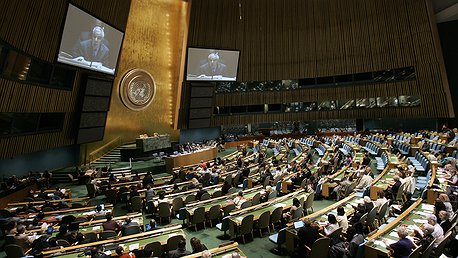
CESR joins Beyond-2015 Executive Committee
CESR is delighted to report that it is joining the Executive Committee of Beyond-2015, the civil society network pushing for a more effective successor framework to replace the Millennium Development Goals when their deadline expires in a few years time.
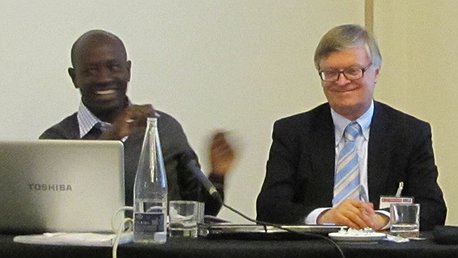
OPERA takes stage at monitoring seminar
On 22 and 23 March, CESR hosted a seminar in Madrid entitled New Horizons in Economic and Social Rights Monitoring. The event brought together over 50 human rights and development practitioners to tackle particular challenges of monitoring compliance with this area of human rights.

Extra-territorial obligations: human rights beyond borders
CESR firmly believes that the ultimate realization of economic and social rights depends on cooperating beyond national frontiers. To this end, the Center has joined group of distinguished international experts to adopt the Maastricht Principles on Extra-Territorial Obligations (ETOs) of States in the area of Economic, Social and Cultural Rights
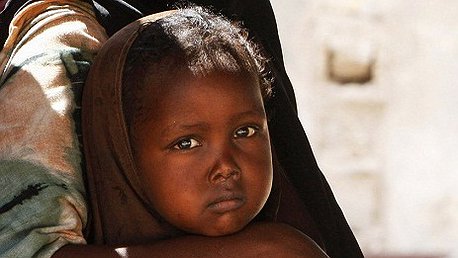
UN experts appeal for accountability in Rio+20 goals
News: A group of 22 UN independent human rights experts have called on States to incorporate international human rights norms, with strong accountability mechanisms, into the Rio+20 sustainable development goals.

Seminar: New Horizons in Economic and Social Rights Monitoring
CESR has staged a major two-day seminar on economic and social rights monitoring in the Spanish capital Madrid.

CESR joins call to action on right to safe water
News: CESR, together with 40 other national and international NGOs, is calling on representatives at the World Water Forum (WWF) to unequivocally support the right to safe water and sanitation.
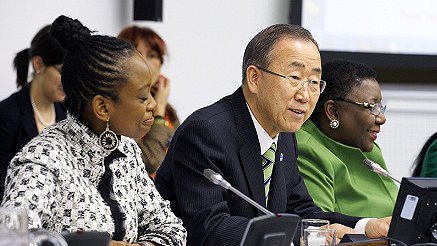
Rural women take center-stage at major UN meeting
The criticial importance of empowering rural women, for the sake of both protecting their rights and promoting development, has been reaffirmed at the 56th Commission on the Status of Women.
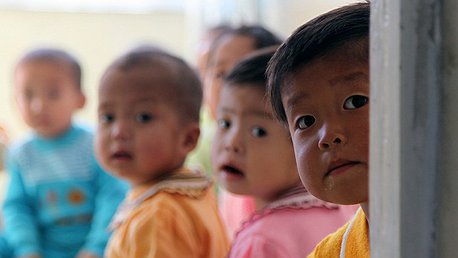
20 states sign new 'OP' on children's rights
News: A diverse group of nations, ranging from Germany and Brazil to Mali, Morocco and Montenegro, have become the first signatories of a new UN mechanism designed to protect children's rights.
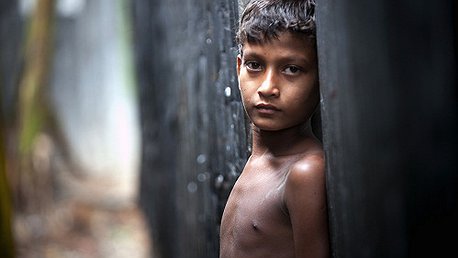
Children in an urban world: Rights denied, opportunities squandered
Abid Aslam, Editor of Unicef's flagship report 'The State of the World's Children', examines the particular human rights challenges facing children in urban areas.
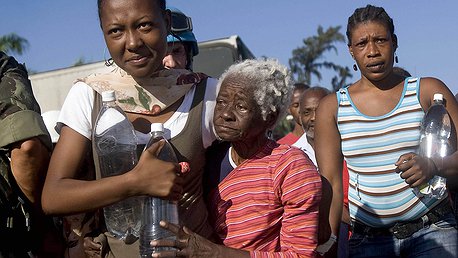
7 down, 3 to go: Momentum builds for economic and social rights complaints mechanism
Only three more ratifications are needed to make the Optional Protocol to the International Covenant on Economic, Social and Cultural Rights operational.

Moments of Truth: Economic and Social Rights in Transitions to Democracy
CESR Program Director Gaby Oré Aguilar and University of Deusto professor Felipe Gómez Isa publish a new book exploring the equality and social justice dimensions of societies emerging from conflict.

Placing human rights at the heart of development
Over the past 12 months some modest but critical headway has been made in efforts to bring human rights centre stage in the discourse of global development.

Rights in crisis: confronting a threefold threat
It is not only the global economy that is in crisis. With markets toppling governments left and right, economic policy itself seems to be in a state of calamity.
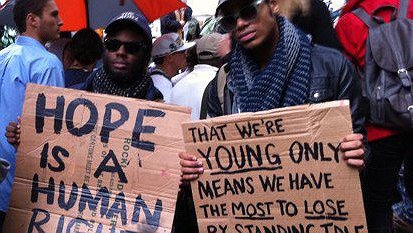
Time to address the economic and social rights deficit
As the world marks International Human Rights Day on December 10, CESR Executive Director Ignacio Saiz reflects on the status of economic and social rights in this age of austerity.
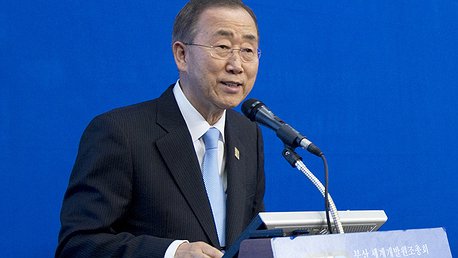
Busan: mutual accountability isn't a one-way relationship
Although 'mutual accountability' is on everyone's lips at the 4th High-level Forum on Aid Effectiveness, all signs are that poor performance in meeting previous aid commitments will continue.
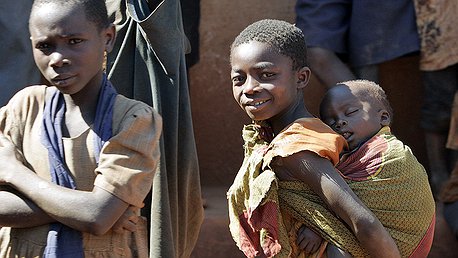
Getting the process right for the world we want
As the UN General Assembly meets to discuss the post-2015 development framework, CESR Chairperson Alicia Yamin and board member Sakiko Fukuda-Parr highlight the importance of designing effective, participative procedures in order to create a better future for all the world's people.
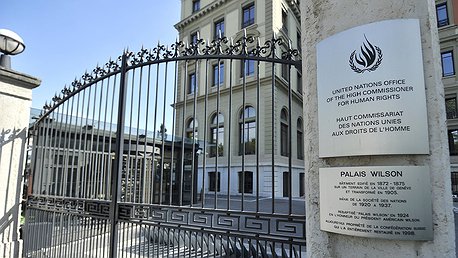
CESR co-hosts expert consultation on the future of the MDGs
An expert consultation was convened in Geneva on November 2-3, 2011 to discuss lessons learnt from the accountability gaps in the MDG framework, as well as how human rights can help narrow these deficits in a future post-2015 international development agenda.

CESR joins call for G-20 leaders to embed human rights in decisions
CESR has come together with 185 other civil society organizations from around the world to remind decision-makers at the G-20 summit in Cannes that human rights must be a key consideration in both their discussions and any commitments undertaken

G-20 and financial regulation: what's at stake for economic and social rights?
As the self-selected rulers of the economic and financial universe gather in Cannes for the G20 summit, CESR Senior Researcher Niko Lusiani asks what's at stake for economic and social rights?

Civil Society demands 'better aid' on International Day for Eradication of Poverty
The Global Call to Action Against Poverty, of which CESR is a member, has joined forces with BetterAid and the Open Forum for CSO Effectiveness to launch a new initiative entitled 'Better Aid for the World We Want'.

Land Grabbing and Its Implications for Economic, Social and Cultural Rights
Each year, up to 30 million hectares of farmland are lost to land grabbing. Land grabbing has reached unprecedented levels in recent years and is an issue of critical concern for economic, social and cultural rights.
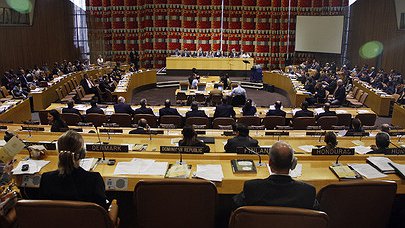
CESR signs civil society letter to UN Secretary General calling for dialogue on post-2015 development framework
CESR has joined the Beyond-2015 campaign's letter addressing the UN Secretary General.

MDG failures prove need for a new rights-based development agenda
The slow pace of progress towards the Millennium Development Goals, revealed in a newly-released UN report, demonstrates the need for a more ambitious and rights-based agenda to end global poverty.

MMSD Human Rights Critique on Mining Practices
Mining, Minerals and Sustainable Development Report, March 2003
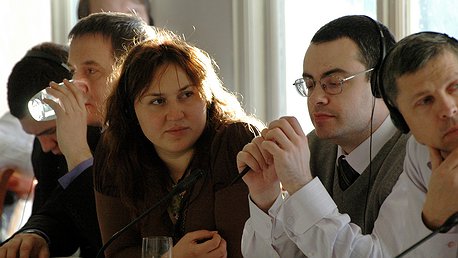
Publications, Reports & Briefings
National Human Rights Institutions and Economic and Social Rights
This 2011 briefing examines national human rights institutions as monitors of economic, social and cultural rights.
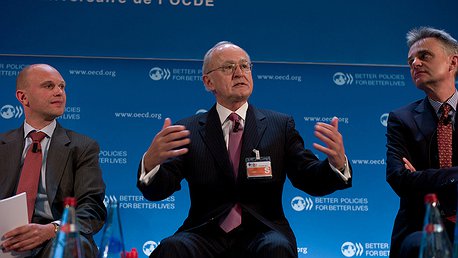
Gaps in corporate accountability need greater attention, civil society groups say
A coalition of civil society groups urges the UN to implement stronger international protections against corporate human rights abuses.

Human Rights Essential to Human Development in Least-Developed Countries
A new goal to halve the number of least-developed countries by 2022 can only succeed if it is grounded within a genuine framework of human rights.
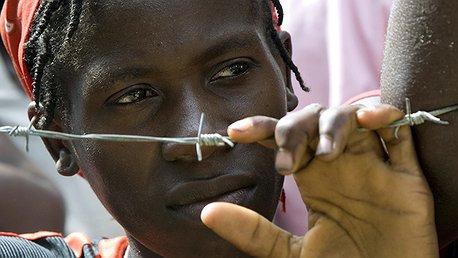
International Financial Institutions Warn About Food Crisis But Offer No Policy Changes
World Bank and IMF continue to ignore calls to reassess their approach to agriculture policies and market regulation.
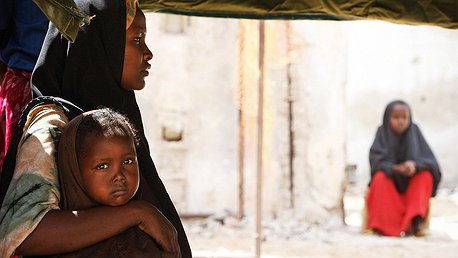
100 Years of International Women's Day
Women should have access to education, to jobs, to land and to resources, not only because it is good for the economy, but because 'like men' they are entitled to these fundamental rights.
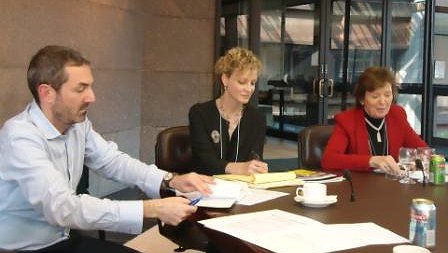
Human Rights and Development: Taking Stock, Moving Forward
In September 2010, immediately following the UN MDG review summit, CESR joined forces with Realizing Rights to reflect on longer-term strategies for transforming the dominant development paradigm through human rights advocacy. Post-MDG 2010 review summit meeting organized by Realizing Rights and CESR
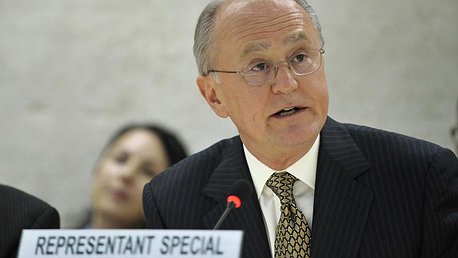
Defining Business Respect For and Protection of Human Rights
NGOs respond to a new UN framework on business and human rights.

How much longer for a legally-binding accord on emissions reductions?
The agreement from the UN climate change negotiations in Cancún has received high praise, but also criticism of a crackdown on social justice activists. A look at the human rights implications.

Time for the G20 to be global leaders where it counts
As the G20 convenes this week in Seoul, will the world's most powerful leaders take their human rights obligations into consideration as they convene to discuss the global economy?
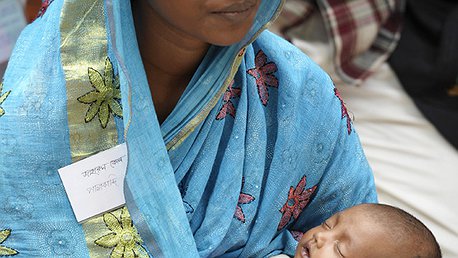
Sexual and Reproductive Health: Submission to UN Committee on Economic, Social and Cultural Rights (CESCR)
CESR's submission on the right to sexual and reproductive health, to be discussed by the Committee on Economic, Social and Cultural Rights during its 45th Session on November 15, 2010.
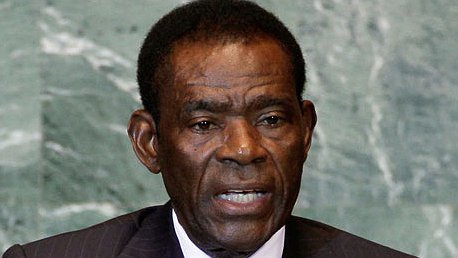
UNESCO Suspends Dictator Prize After Global Protest
CESR and its partners welcomed UNESCO's decision today to suspend, indefinitely, the prize funded by and named after President Obiang of Equatorial Guinea.

Message to UN General Assembly: "Don't forget human rights in achieving the Millennium Goals"
Top independent human rights experts call on world leaders attending next week's UN Summit on the Millennium Development Goals "to be guided by human rights."

Building a Global Partnership for Development through MDG 8
MDG 8 sets a wide range of targets on trade, aid, debt and increasing access to new technologies and essential medicines. However, a review of progress on consolidating a global partnership reveals worrying trends about rich countries' commitment to the attainment of the MDGs.

Publications, Reports & Briefings
The MDGs, A Decade On: Keeping the Promise, Fulfilling Rights
A new CESR review of the latest MDG data finds progress has been too slow even to meet the MDGs' modest 2015 targets.
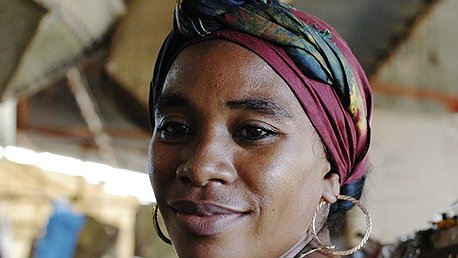
The Millennium Summit: an opportunity to show leadership on women's rights
MDG 5, which focuses on improving maternal health, has been the most neglected and underfunded. Not surprisingly, it has shown very uneven progress.
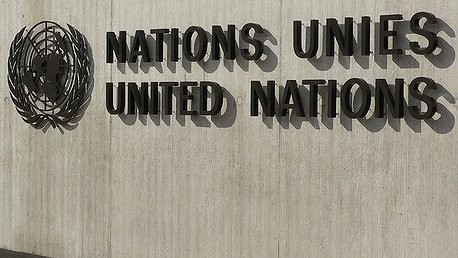
Publications, Reports & Briefings
Development and human rights: lessons learned from the MDGs
Guest briefing written for CESR by author Rick Rowden.
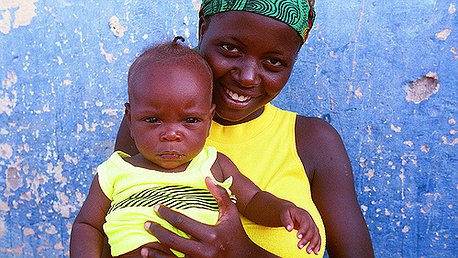
Maternal Health Goal May Be Furthest Off-Target
Lack of accountability hampers achievement of MDG 5 on reducing maternal mortality and increasing access to reproductive health care, writes CESR Board Chair Alicia Yamin in a recent journal article.
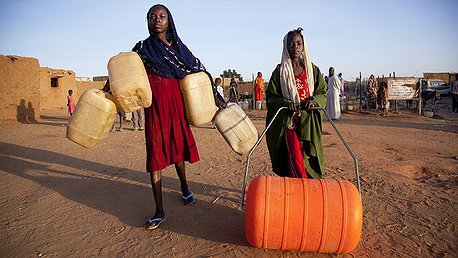
UN Resolution Recognizes Water as a Right
UN General Assembly passes a resolution declaring access to clean water and sanitation as a fundamental right.

Human Rights Responses to the Global Economic Crisis in Geneva
The Center for Economic and Social Rights, along with ESCR-Net and the United Nations Non-Governmental Liaison Service (NGLS), is sponsoring an event on Thursday, March 4 from 13:15-15:00 in Room XXIII of the Palais de Nations (Geneva). The event is called "Human Rights Responses to the Global Economic Crisis."

Case studies, Essays, Publications
Documenting the Global Recession: Crisis and Opportunity
New publication of photographs highlights human rights during times of economic crisis.

Inter-American Development Bank under pressure over new capital requests
More than 100 civil society organizations from 18 countries stepped up pressure on the Inter-American Development Bank by demanding transparency and evidence of structural reforms.

Using Budgets to Monitor Human Rights
New Tactics is hosting an online dialogue from February 24 to March 2 called "Using Budget for Monitoring".
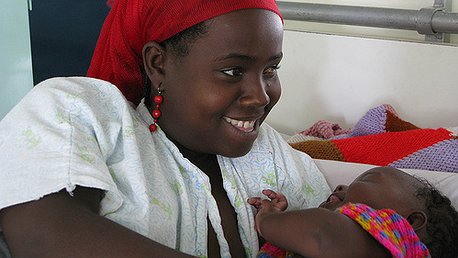
Maternal Mortality and Human Rights
CESR will co-sponsor "Maternal Mortality - rights of 'critical concern' within and beyond Beijing," a panel discussion on Tuesday, March 9, 2010 from 14:00 to 15:30 at the UN Church Center in New York on the 2nd floor.

Online discussion on Women and Poverty
UNDP and UN/DESA are organizing an online discussion on Women and Poverty in preparation for the 15-year review of the implementation of the Beijing Platform for Action; the ECOSOC Annual Ministerial Review on gender equality (AMR); and the High-level Plenary Meeting of the sixty-fifth session of the General Assembly, focused on the Millennium Development Goals.
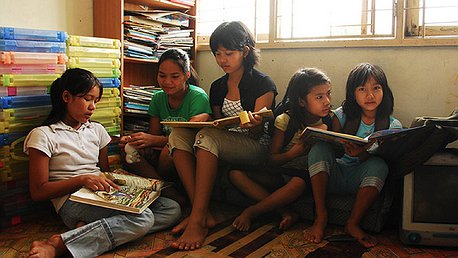
Making Education Accountable
The Right to Education Project just asked leaders on the right to education to answer two questions in their online forum on discrimination in education.

Measuring Economic and Social Rights to Hold Governments Accountable
In the OECD Journal on Development "Measuring Human Rights and Democratic Governance" CESR presents a framework for measuring economic and social rights.

Experts Comment on Rights in Times of Economic Crisis
Experts stress that access to social security and protection is not a policy choice, but rather a human rights obligation.

UN Human Rights Council Investigates Links Between Extreme Poverty and Human Rights
Work is underway on draft guiding principles on Extreme Poverty and Human Rights; they will examine existing international laws in relation to the human rights of people living in extreme poverty.
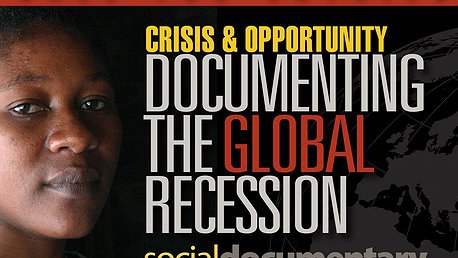
Documentary photography competition offers new storytelling opportunity to promote rights in crisis
Deadline extended to December 7: Photograph the global financial crisis with CESR and SocialDocumentary.net
_1.jpg.458x258_q85_box-0%2C21%2C405%2C248_crop_detail.jpg)
Event: Human Rights and Financing for Development
The Office of the High Commissioner for Human Rights and the Center of Concern are hosting a parallel event to the 64th UN General Assembly session on 26 October 2009, in NYC.

Event: Enforcing Economic, Social and Cultural Rights - The Hope and Challenge of the Optional Protocol
Once operational, this new international mechanism will provide victims of economic, social and cultural rights violations who are not able to get an effective remedy in their domestic legal system with tangible legal options for redress.
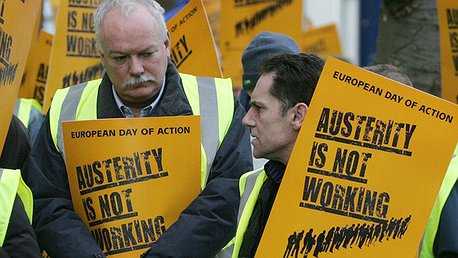
Publications, Reports & Briefings
Human Rights and the Economic Crisis
A new CESR briefing explores the human rights dimensions of the global economic crisis: its consequences, causes and responses.

UN opens doors to dialogue and action on global economic crisis
The United Nations Human Rights Council will hold the 2009 Social Forum from 31 August to 2 September.

Responding to the Global Crisis: Launch lecture of UNCTAD's Trade and Development Report 2009
The launch lecture on 1 September 2009 of UNCTAD's 2009 Trade and Development Report will feature "Responding to the Global Crisis and "Climate Change Mitigation and Development".

Input needed for UN Secretary General report on economic crisis and its impact on the world's most vulnerable people
The G20 has requested a comprehensive report from the UN Secretary General on the impact the global financial crisis has had and is having on the poor and most vulnerable around the world.

The NGO Coalition for an Optional Protocol to ICESCR
The NGO Coalition for an Optional Protocol to the International Covenant on Economic, Social and Cultural Rights (OP-ICESCR) has launched a petition in support of the Optional Protocol to the ICESCR
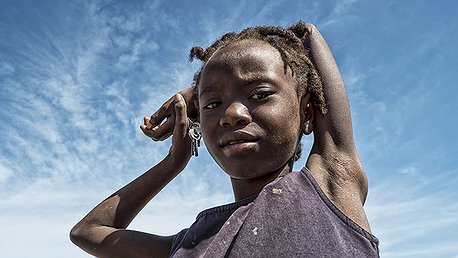
Implementing Economic, Social and Cultural Rights
The recently released "Report of the UN High Commissioner for Human Rights on Implementation of Economic, Social and Cultural Rights" presents concepts related to implementing and monitoring economic, social and cultural rights.

Exploring the Optional Protocol to the International Covenant on Economic, Social and Cultural Rights
Human rights journal publishes special issue about new rights of individuals or groups to have violations of their rights heard by the UN Committee on Economic, Social and Cultural Rights.

Rights in Recession?
CESR Executive Director Ignacio Saiz on the challenges for economic and social rights enforcement during economic crisis.

Economic Crisis and Human Rights
At the start of the UN General Assembly's conference on the economic crisis, CESR urged world leaders to sieze the opportunity to put human rights at the centre of its global responses.
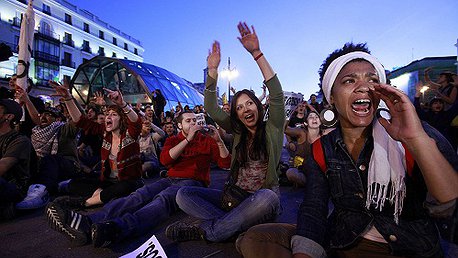
Human Rights and the Economic Crisis: A Transformative Moment?
The current economic crisis is fast becoming a human rights crisis.CESR urges world leaders meeting in New York this week to seize the opportunity to place human rights principles, not profit, at the heart of crisis responses, economic policy and global economic governance.
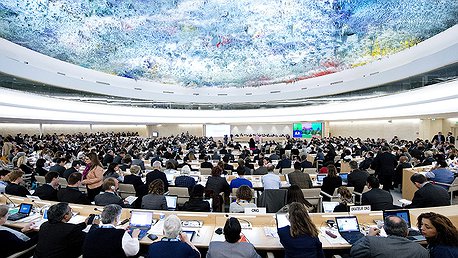
The 11th session of the Human Rights Council begins
The 11th session of the Human Rights Council opened today in Geneva. Lasting from 2-19 June 2009, the session will assess the human rights situation is various countries.
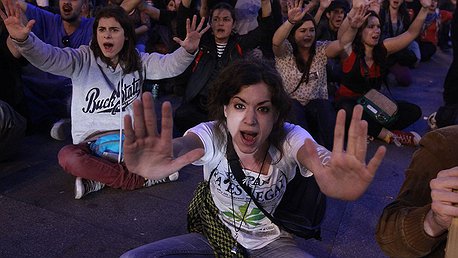
Human rights an essential framework for tackling the global economic crisis
CESR's statement at UNCTAD's Public Symposium on the global economic crisis and development stressed the need for a human rights framework.

The Global Economic Crisis and Development - the way forward
The United Nations Conference on Trade and Development (UNCTAD) is organizing a public symposium "The Global Economic Crisis and Development - the way forward" on 18-19 May 2009.

Public health policies suffering from effects of global financial crisis
Director-General of the WHO urges continued support for public health, pursued for its own sake as a basic human right.

Accessing education as a human right
The United Nations Independent Expert on Minority Issues addresses the human right of equal access to quality education.
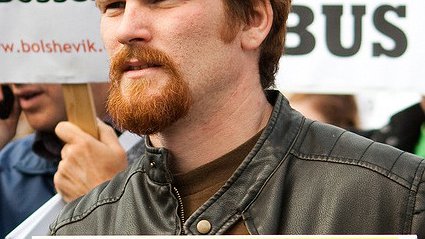
Publications, Reports & Briefings
Bringing Human Rights to Bear in Times of Crisis
A human rights analysis of government responses to the economic crisis

What is the new U.N. optional protocol on economic, social and cultural rights?
Forty-two years after a similar mechanism was adopted for civil and political rights, those who suffer from violations of their economic, social and cultural rights are finally given equal status.
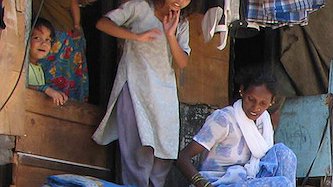
Publications, Reports & Briefings
Poverty and Human Rights: is poverty a violation of human rights?
Poverty is an assault on human dignity, but it can also reflect a violation of human rights when it is the direct consequence of government policy or is caused by the failure of governments to act.

How can we use quantitative methods to monitor ESC rights?
Edward Anderson, from the University of East Anglia examines how quantitative methods could be incorporated to assess governments' compliance with their human rights obligations.
Publications, Reports & Briefings
Mining minerals: human rights critique on mining practices
Mining, Minerals and Sustainable Development Report, March 2003.
